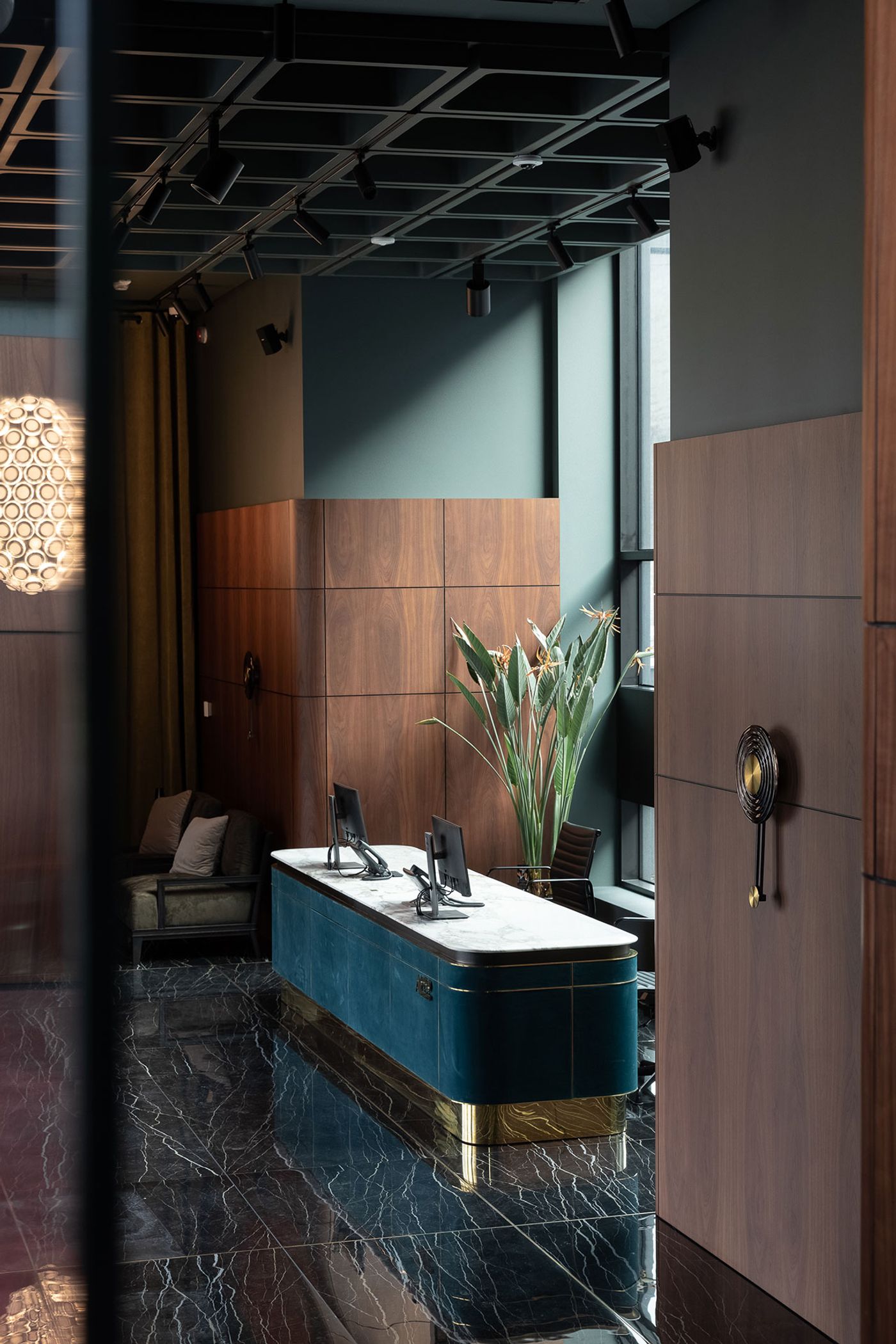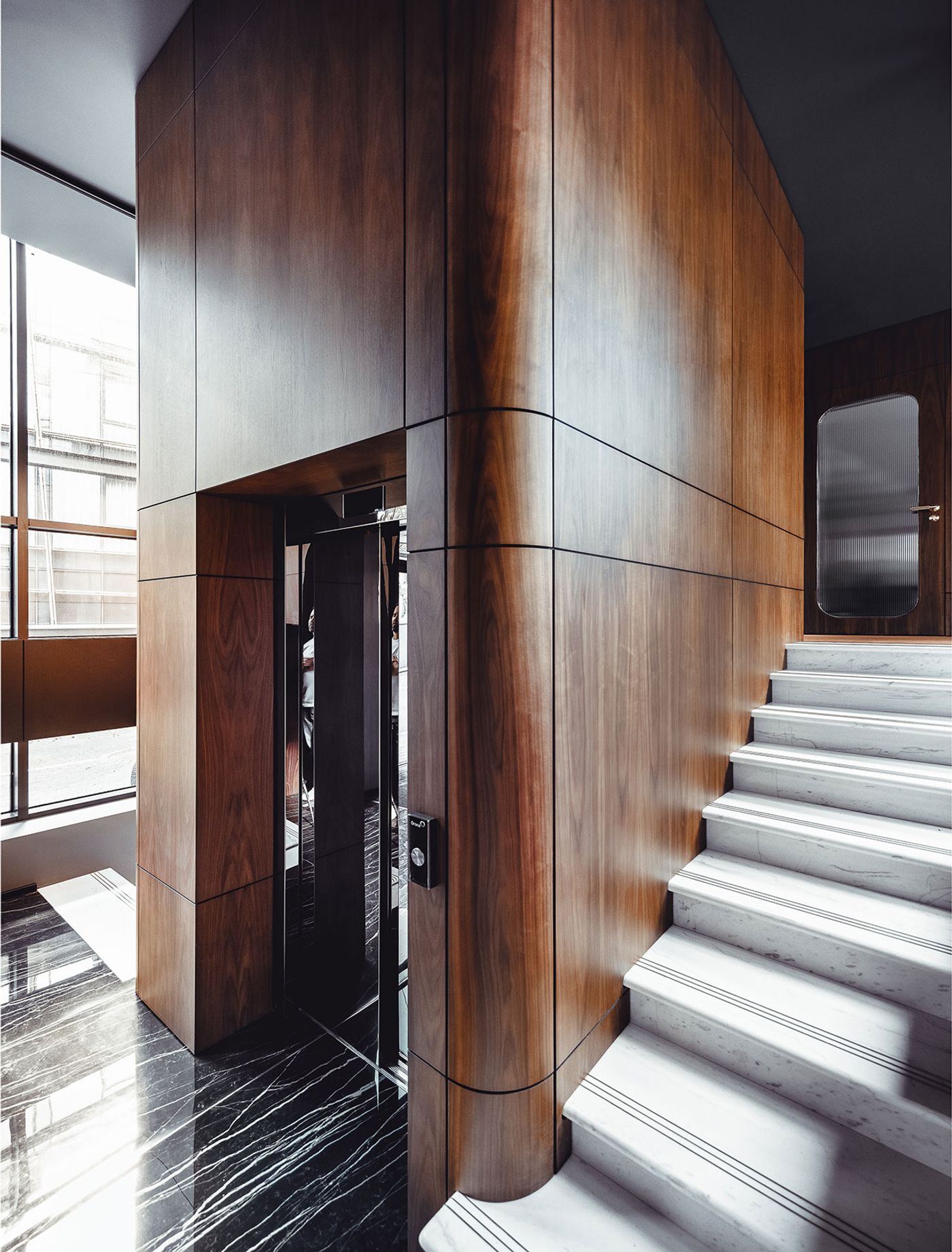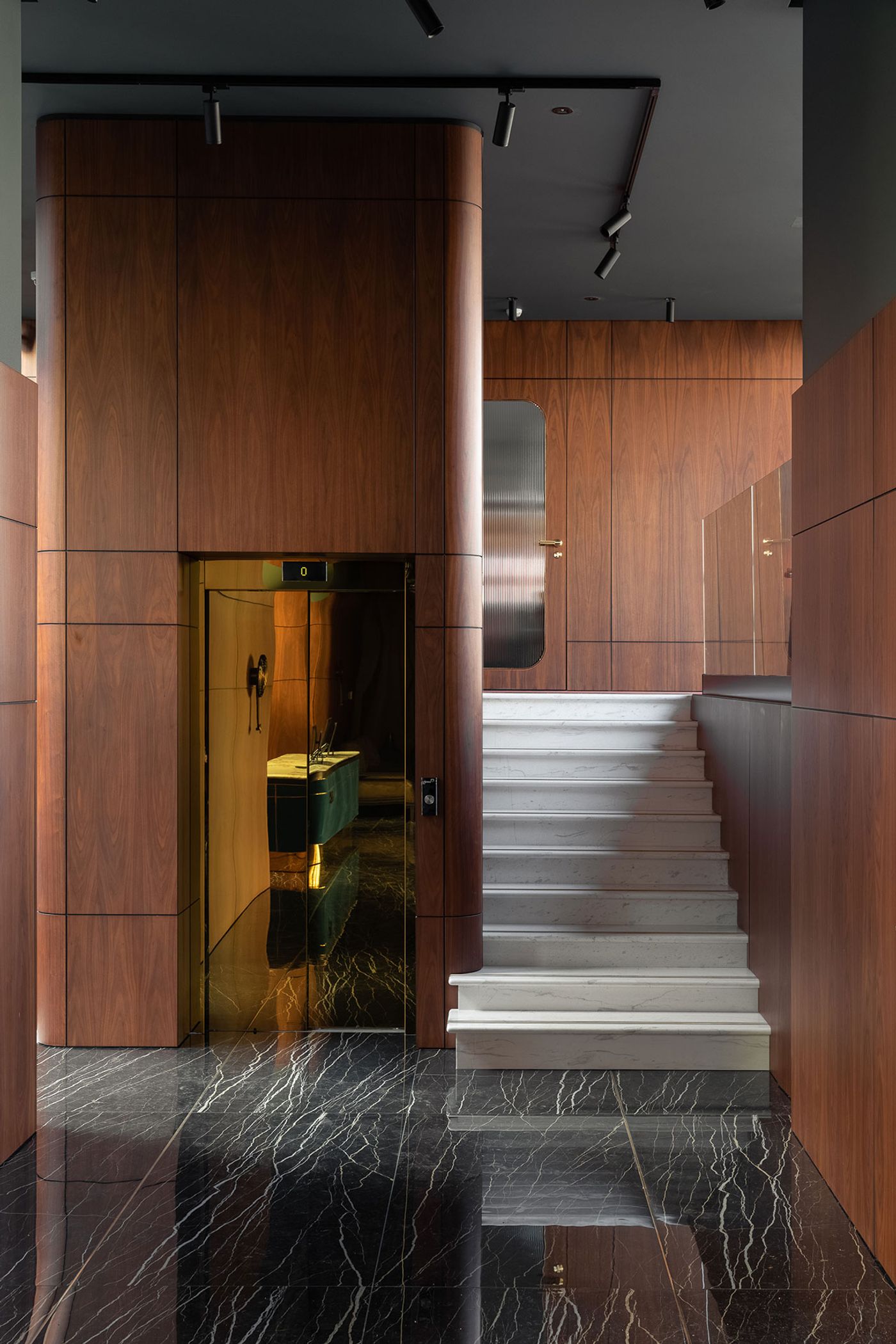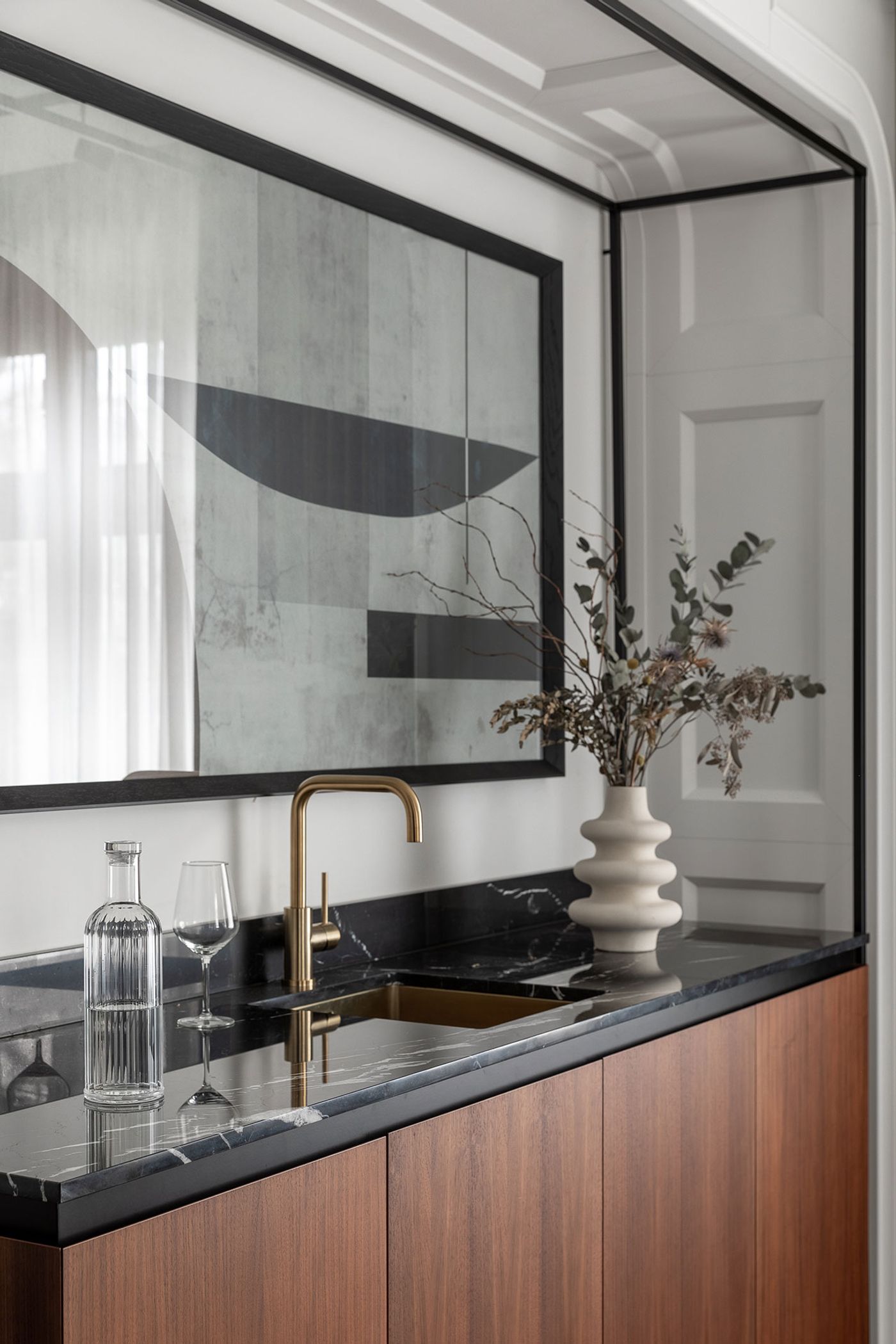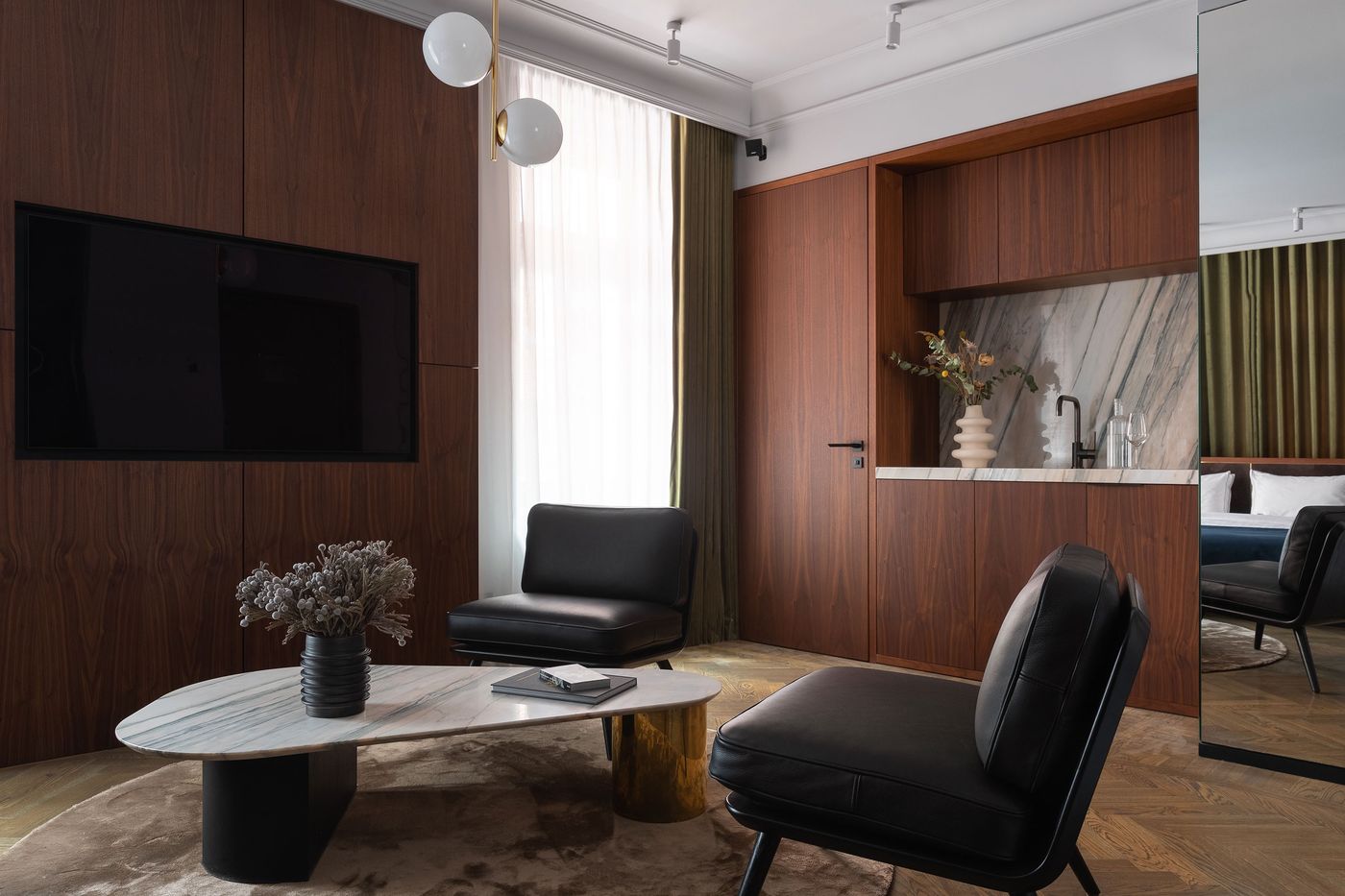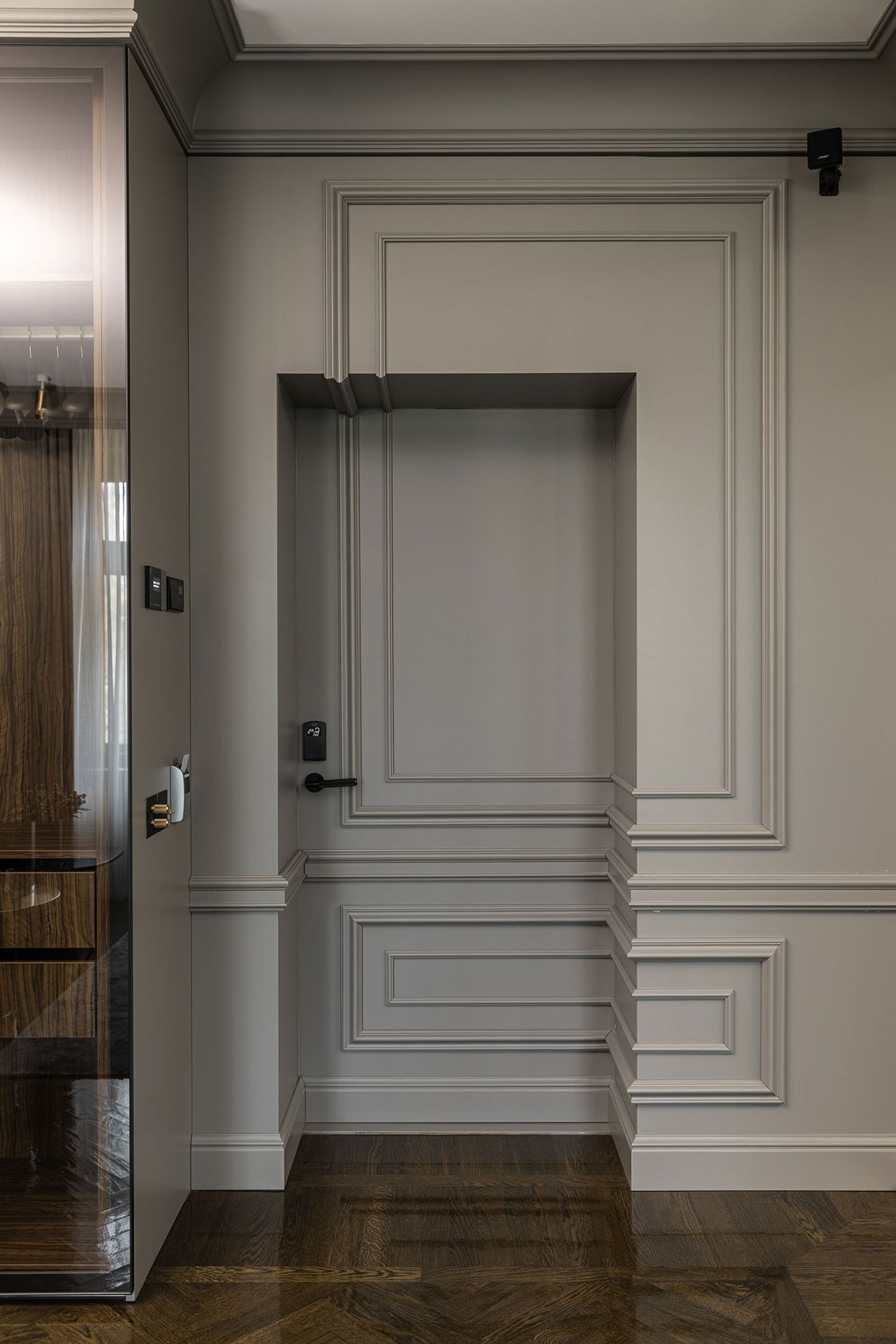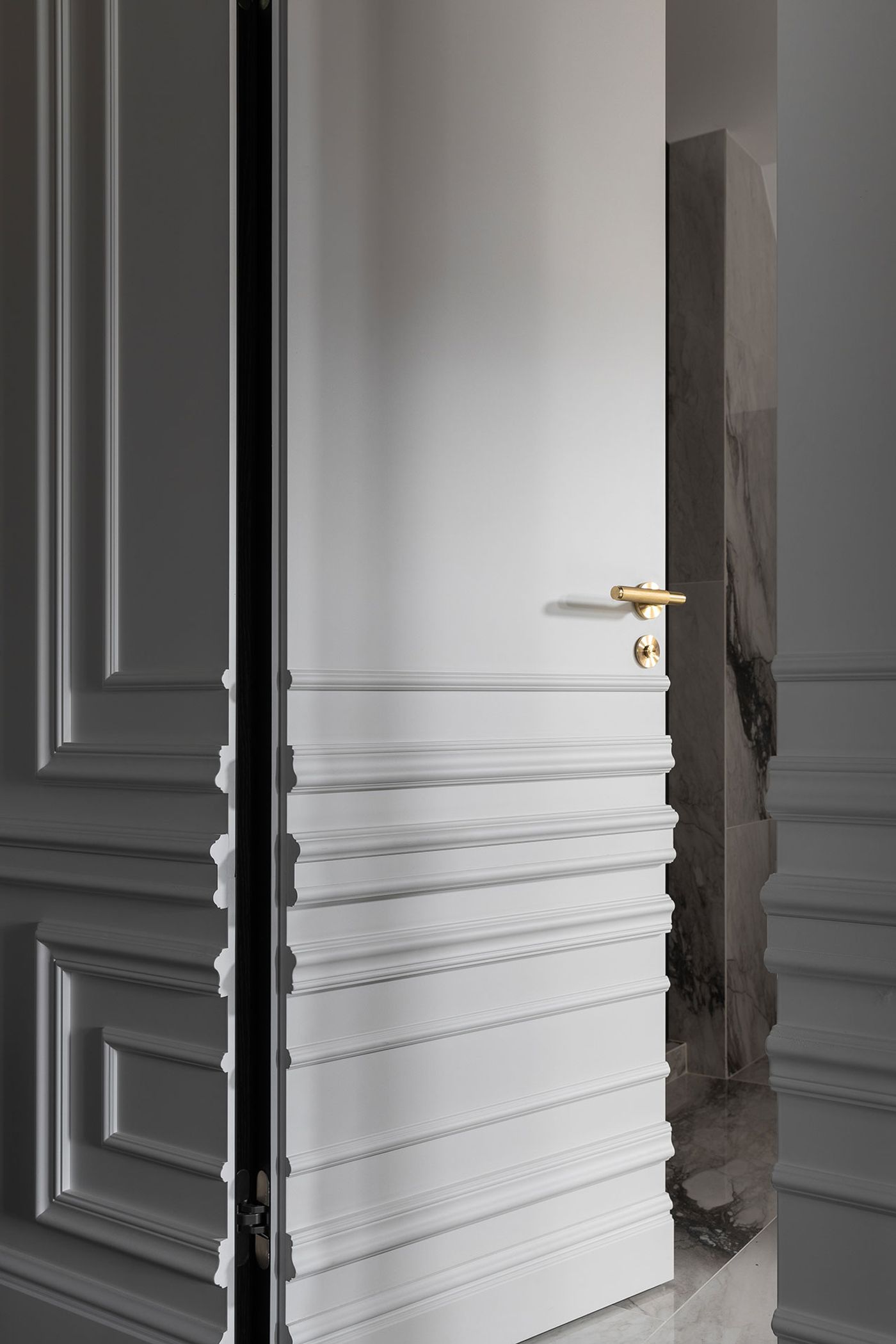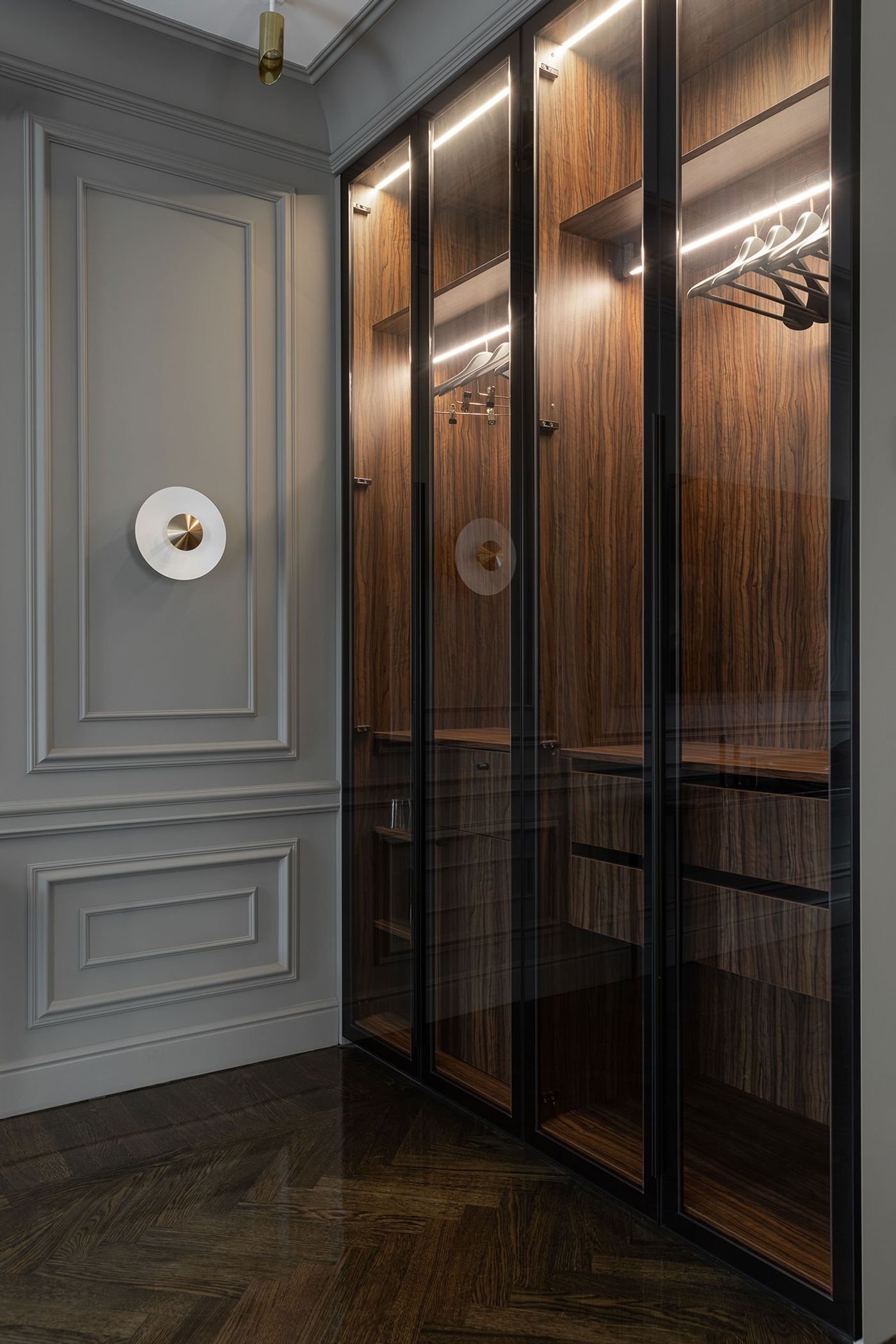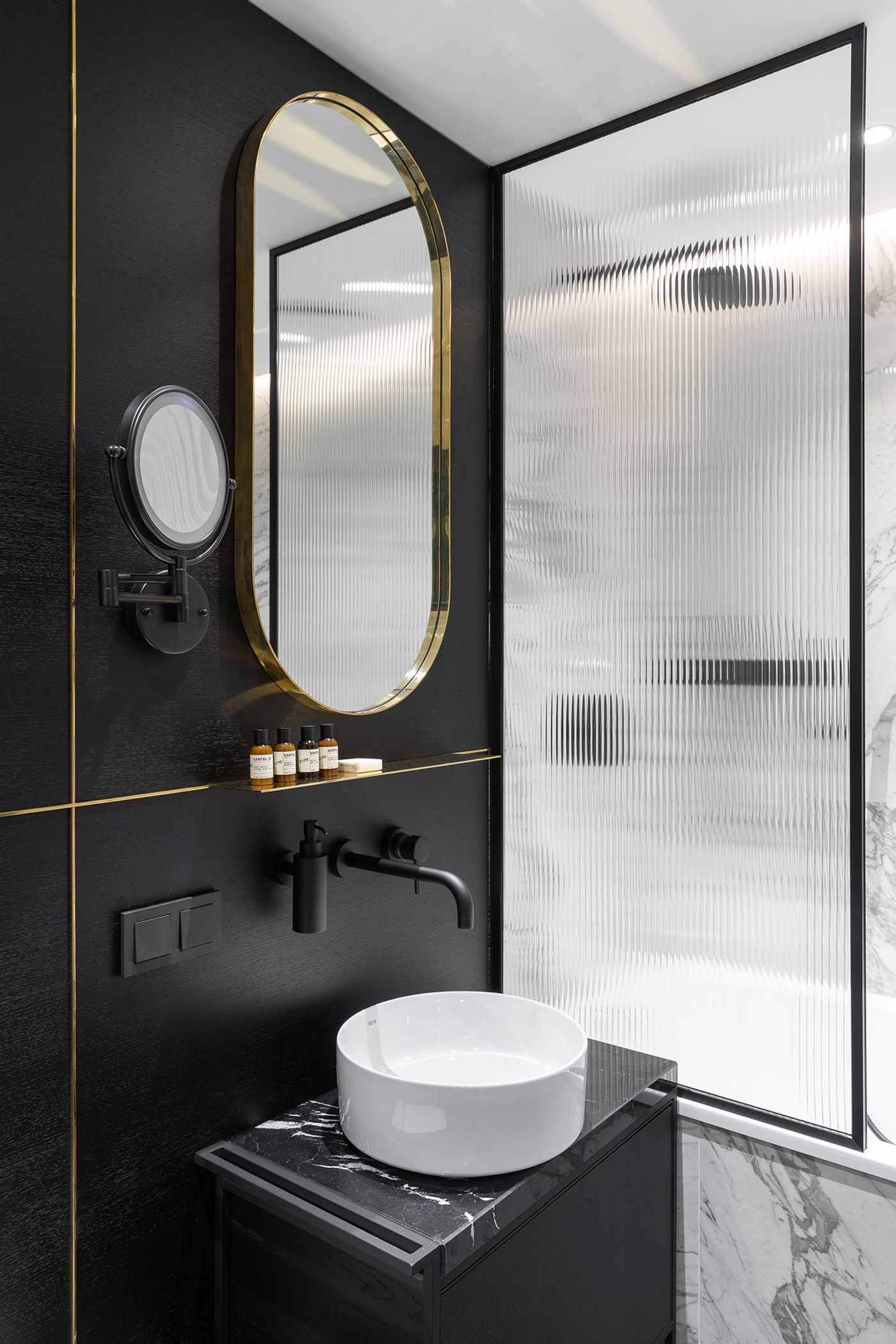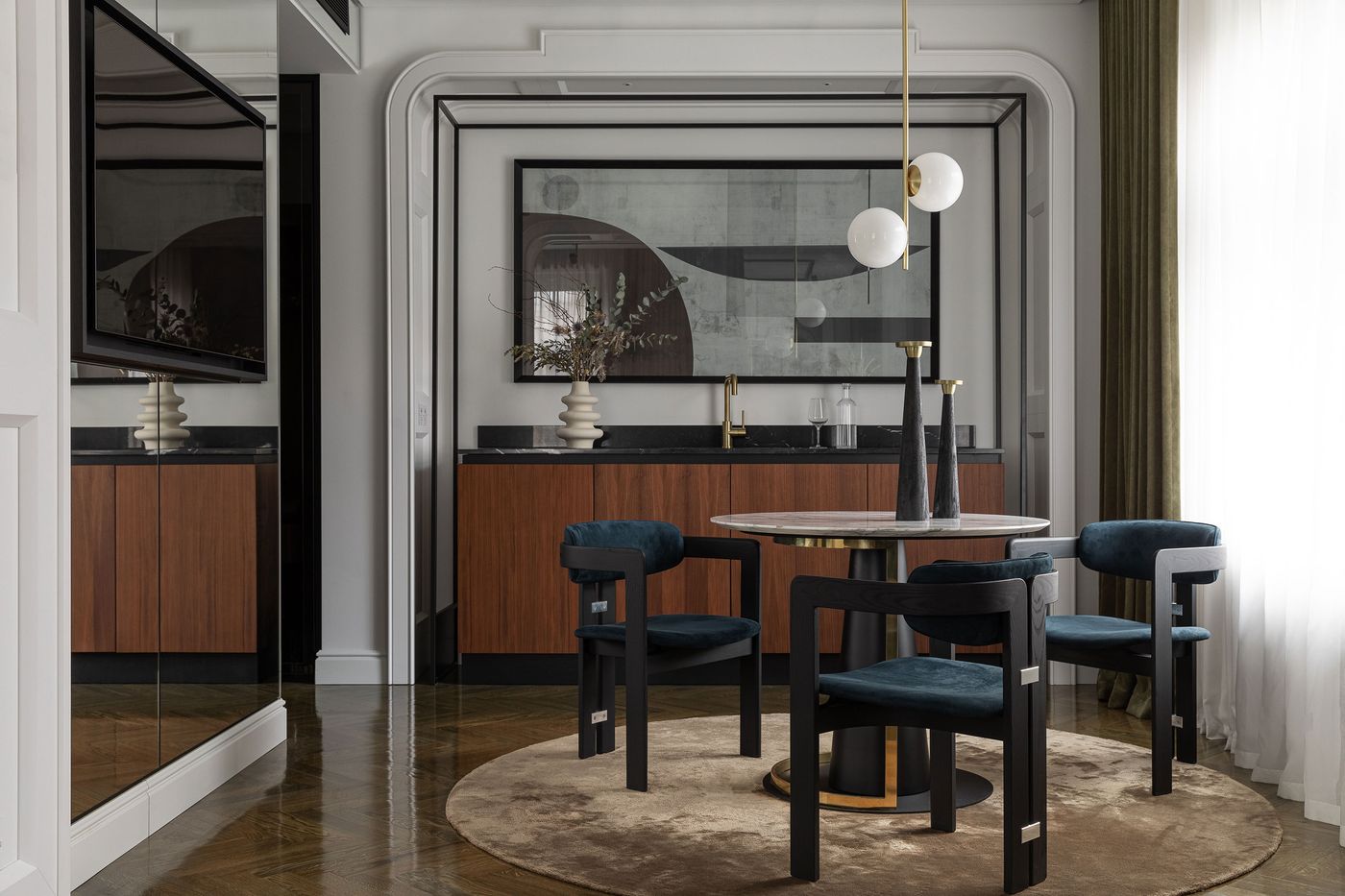
Riga's A22 Hotel Mixes Art Nouveau, Mid-Century Modern & Contemporary Accents in Reflection of its Storied History
Words by Yatzer
Location
Riga, Latvia
Riga's A22 Hotel Mixes Art Nouveau, Mid-Century Modern & Contemporary Accents in Reflection of its Storied History
Words by Yatzer
Riga, Latvia
Riga, Latvia
Location
Located in Riga’s “Quite Centre”, a leafy neighbourhood known for its Art Nouveau architecture, the recently unveiled A22 boutique hotel bridges past and present in both subtle and overt ways, most obviously by occupying an early 20th century building that housed the US Embassy in Latvia in the 1930s and a purpose-built contemporary extension. Drawing from the building’s architectural heritage and storied history, local interior design studio CBP Design, who are also responsible for the hotel’s branding identity, artfully combined Art Nouveau with mid-century modern elements for an understated chic aesthetic that makes for a striking yet welcoming environment. A22 is a bona fide boutique hotel comprising just 20 tailor-made guest rooms and suites, a 40-seat fine dining restaurant and cocktail bar, named “JOHN” and “JACKIE” respectively as a tribute to John F. Kennedy who stayed here in 1939, as well as a fully equipped gym, intimate Spa and events space.
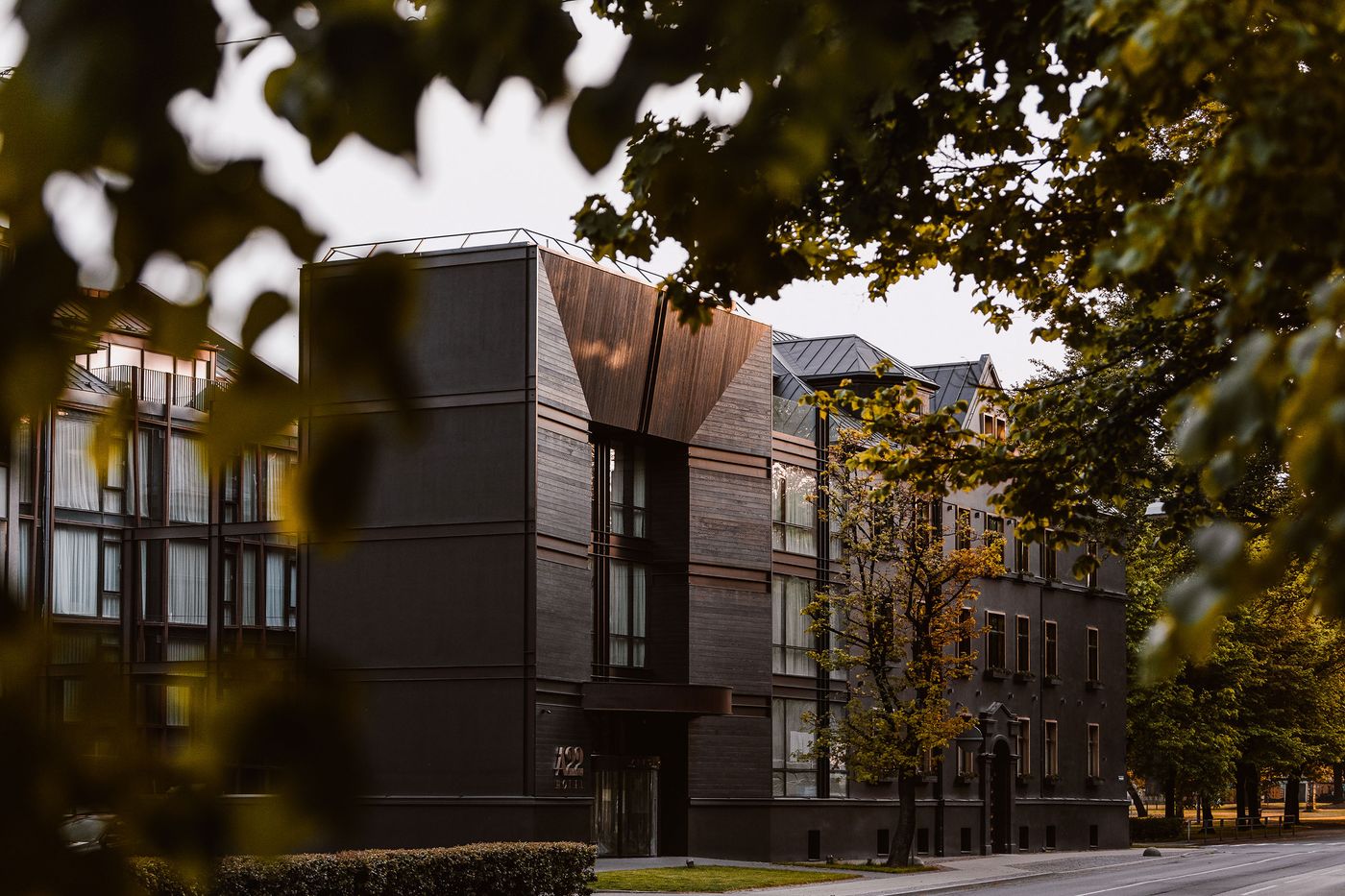
Photography by Marks Litvjakovs.
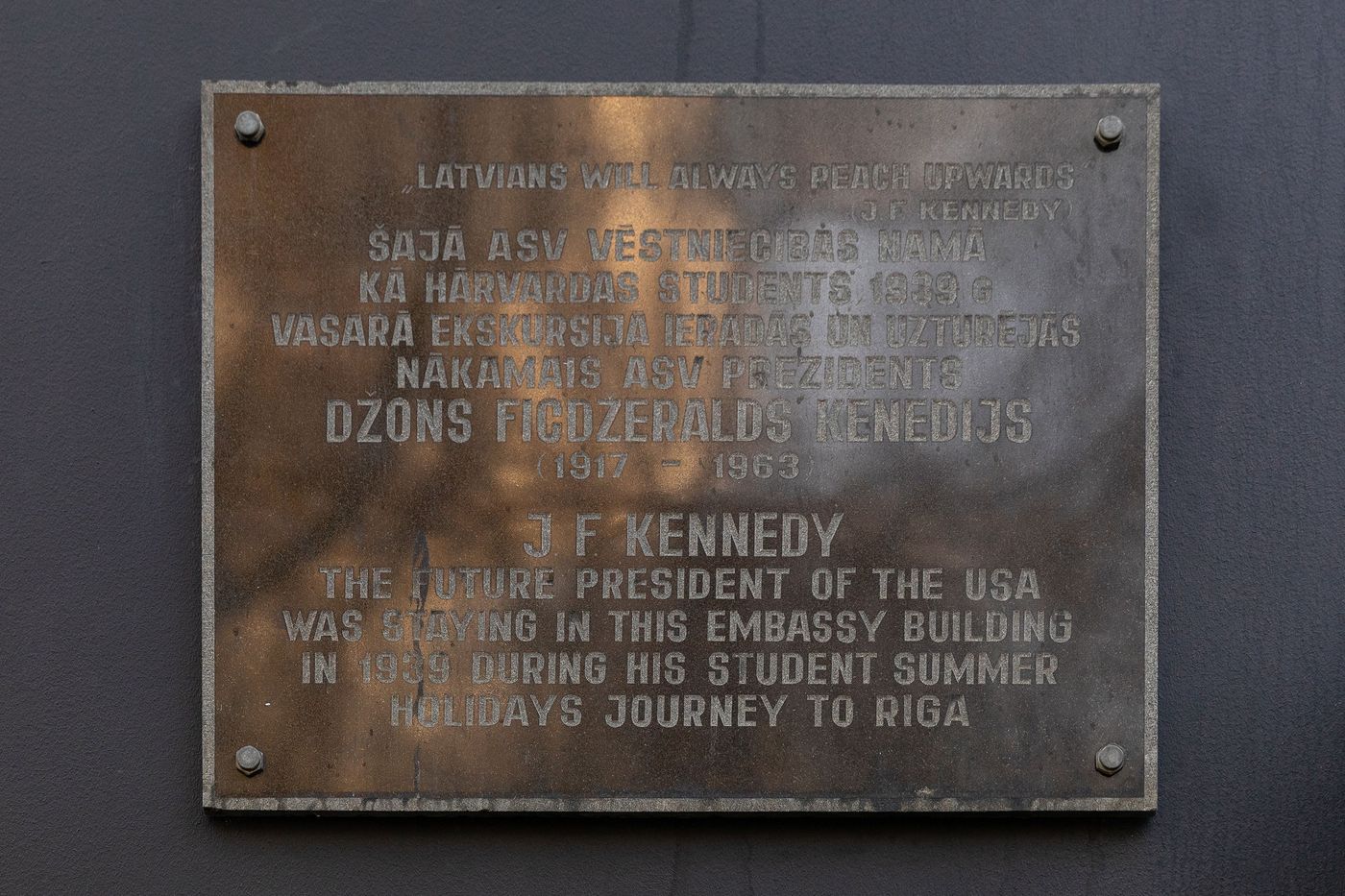
Photography by Marks Litvjakovs.
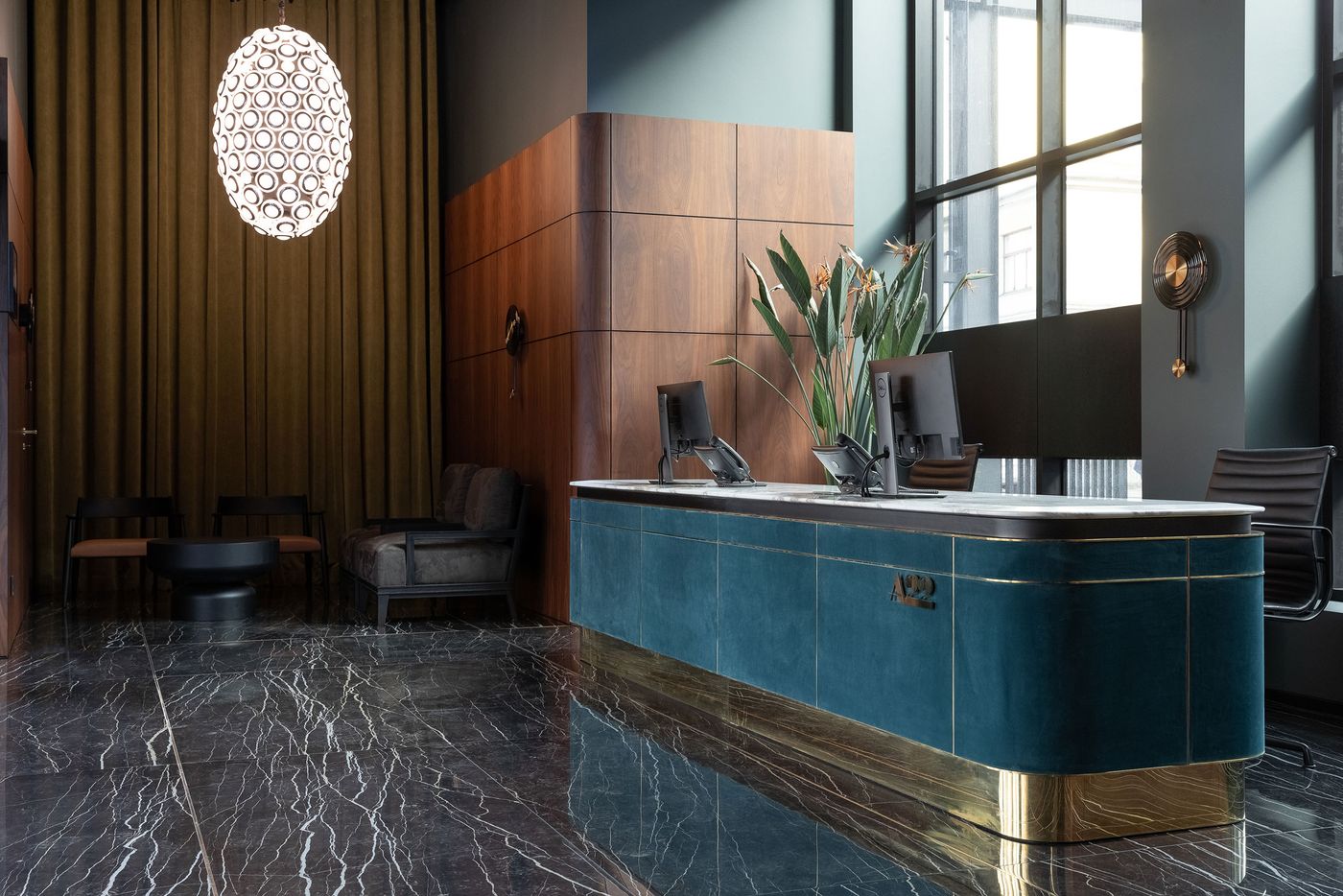
Photography by Marks Litvjakovs.
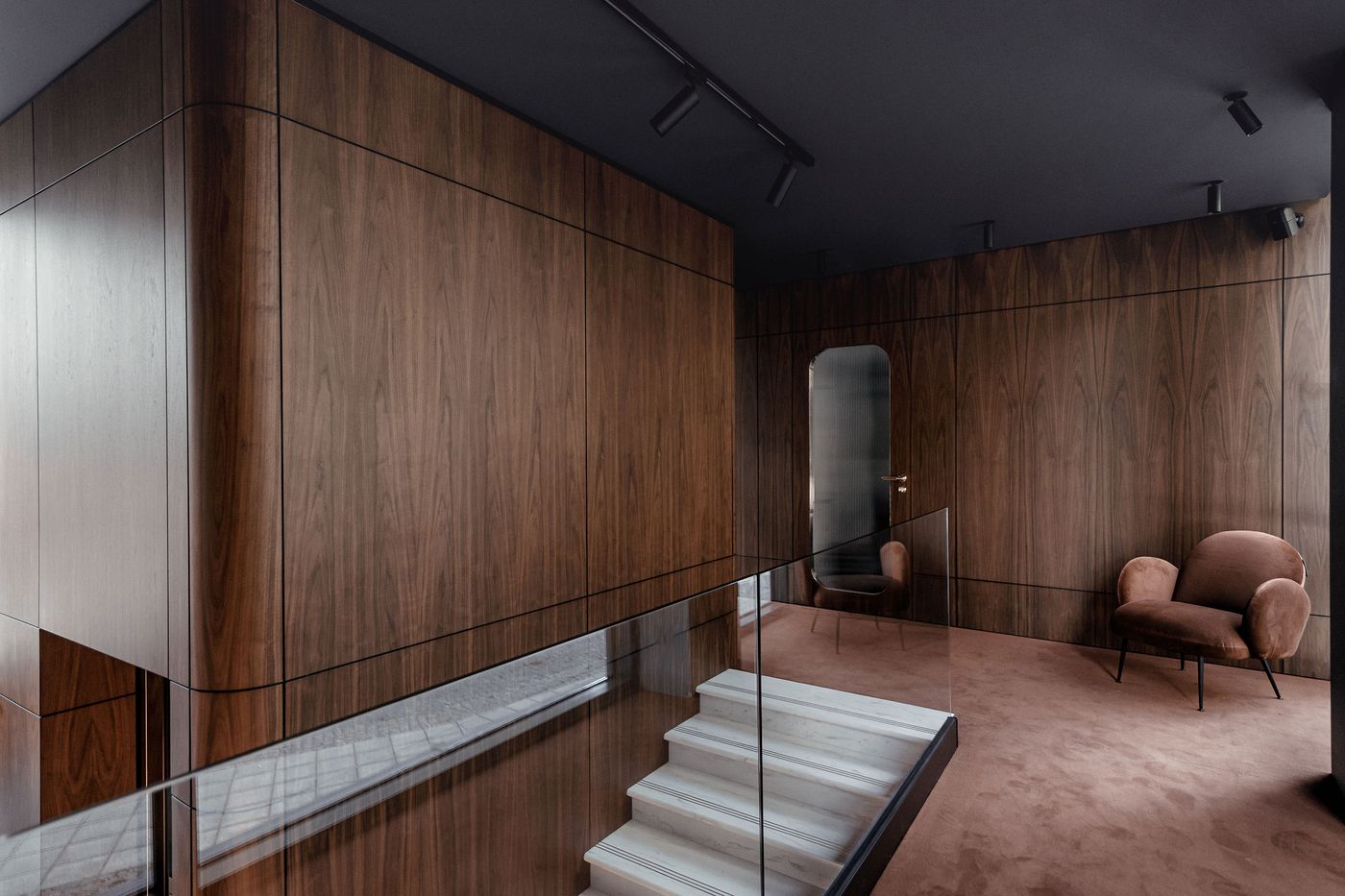
Photography by Marks Litvjakovs.
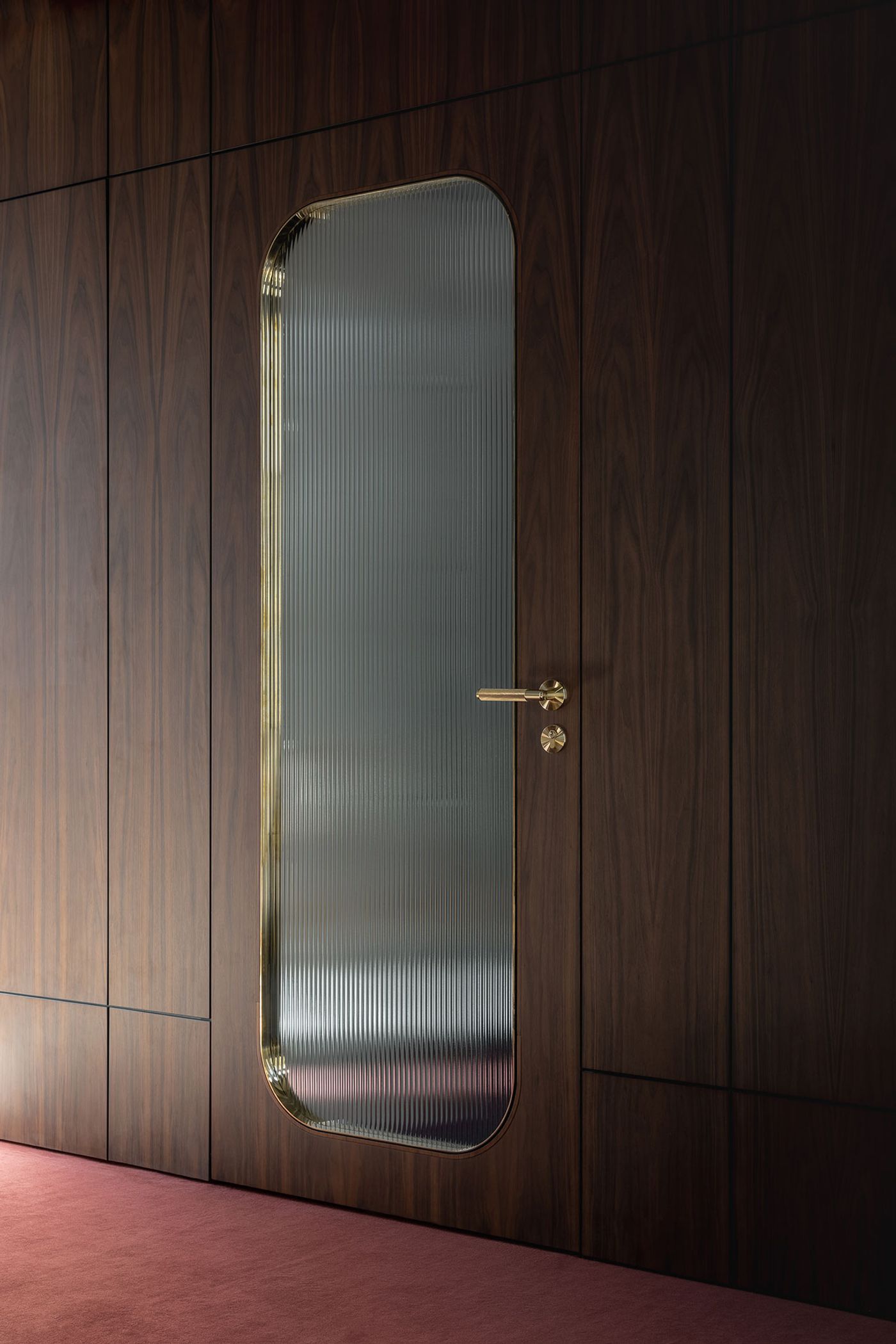
Photography by Marks Litvjakovs.
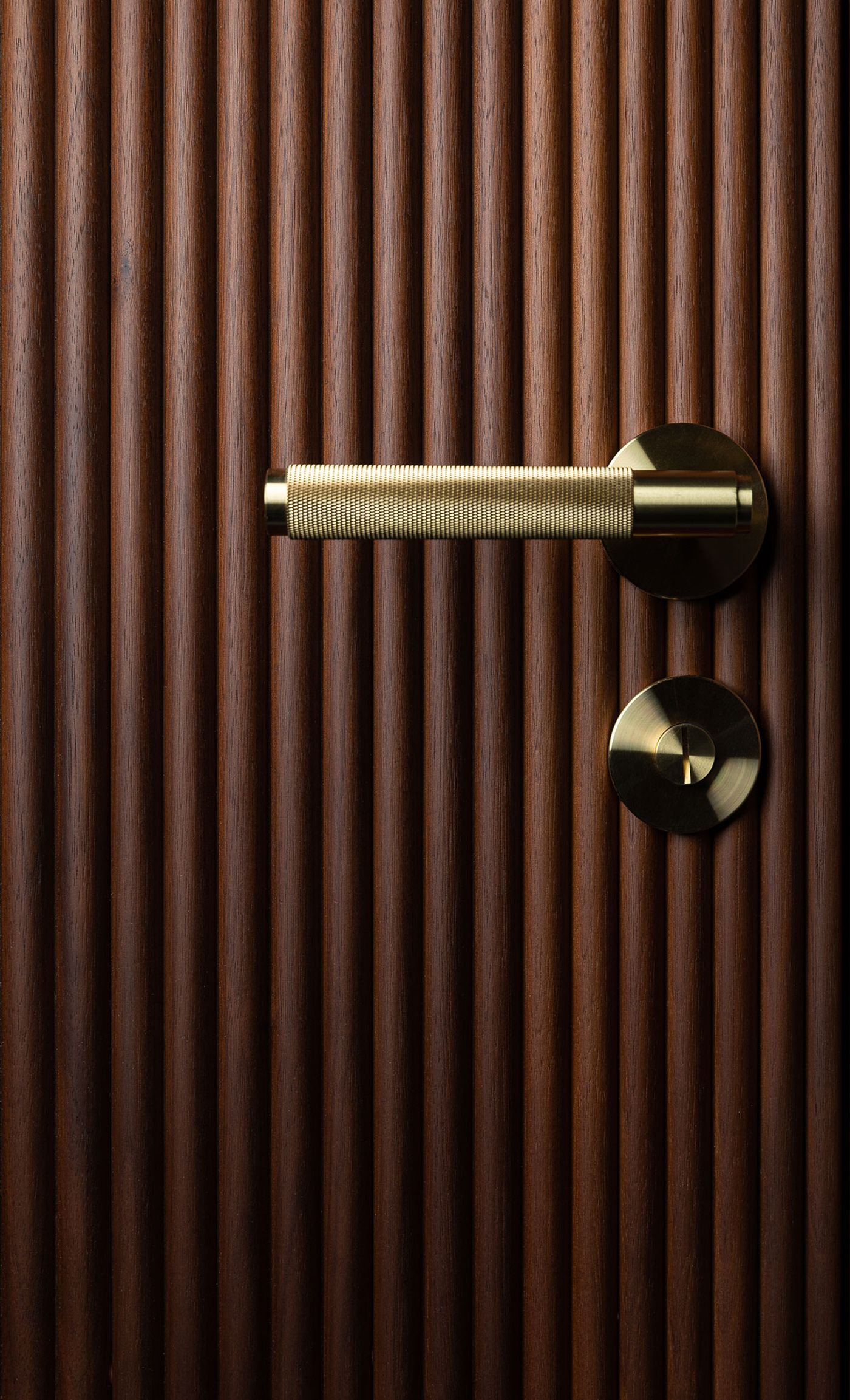
Photography by Marks Litvjakovs.
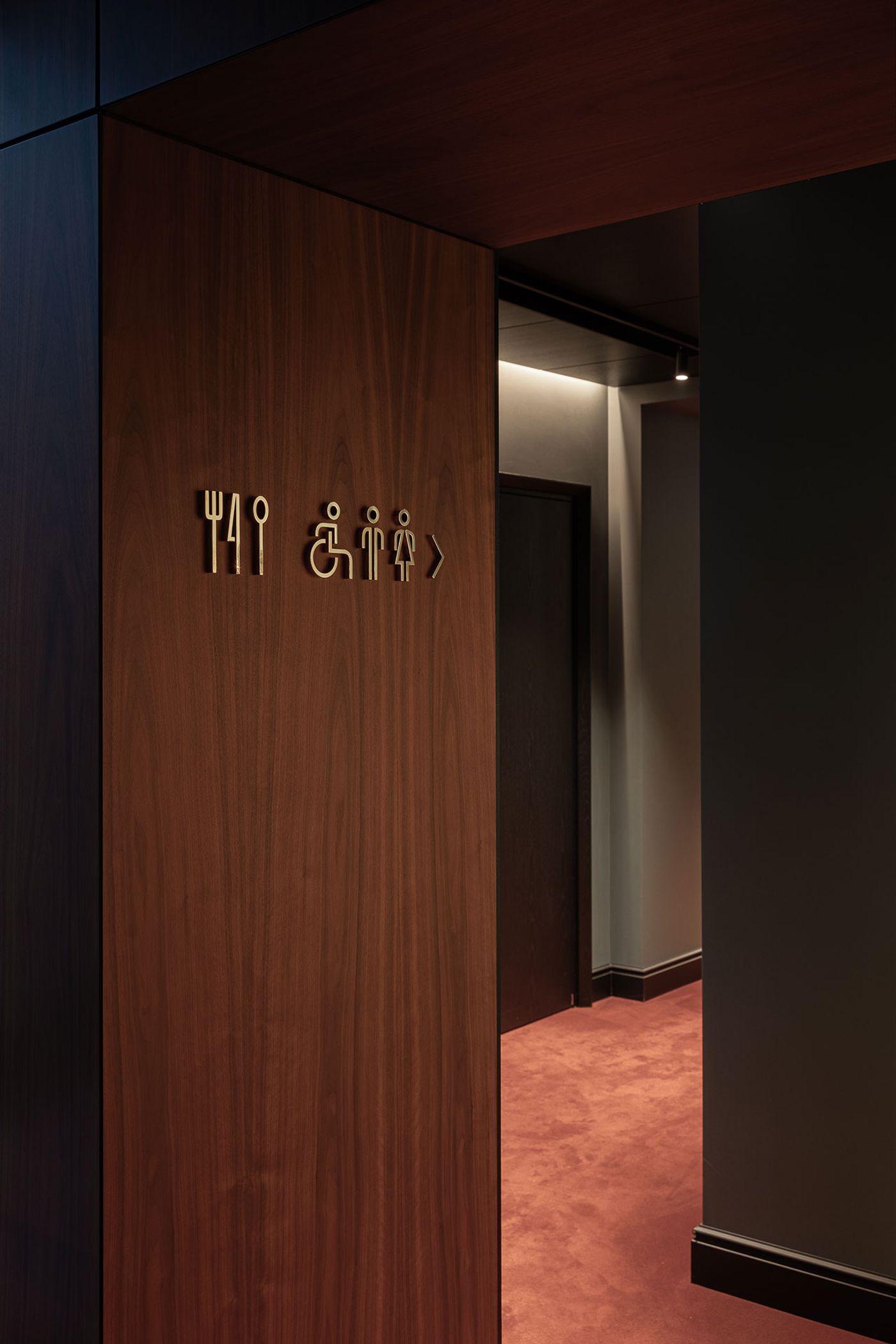
Photography by Marks Litvjakovs.
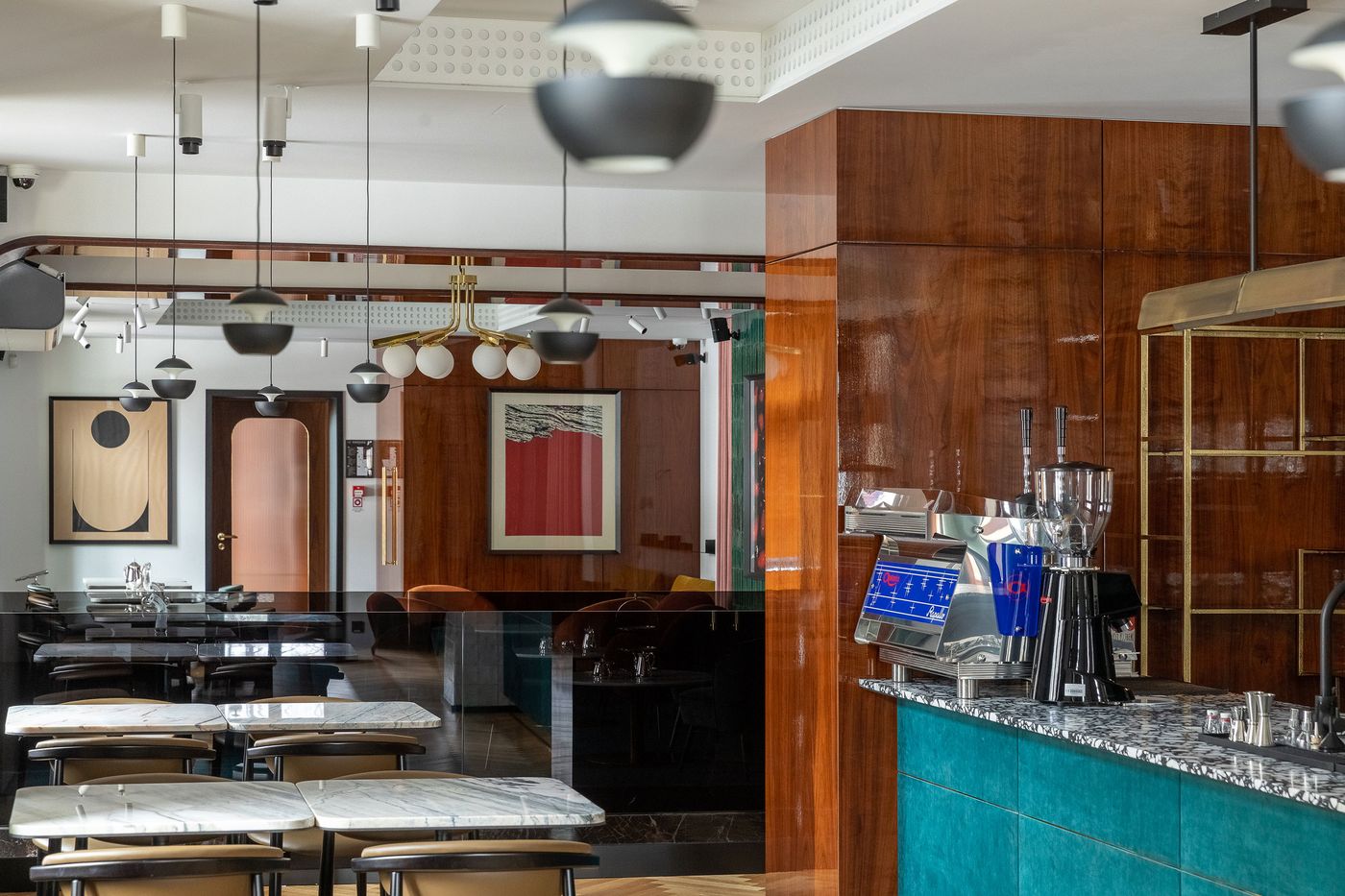
Photography by Marks Litvjakovs.
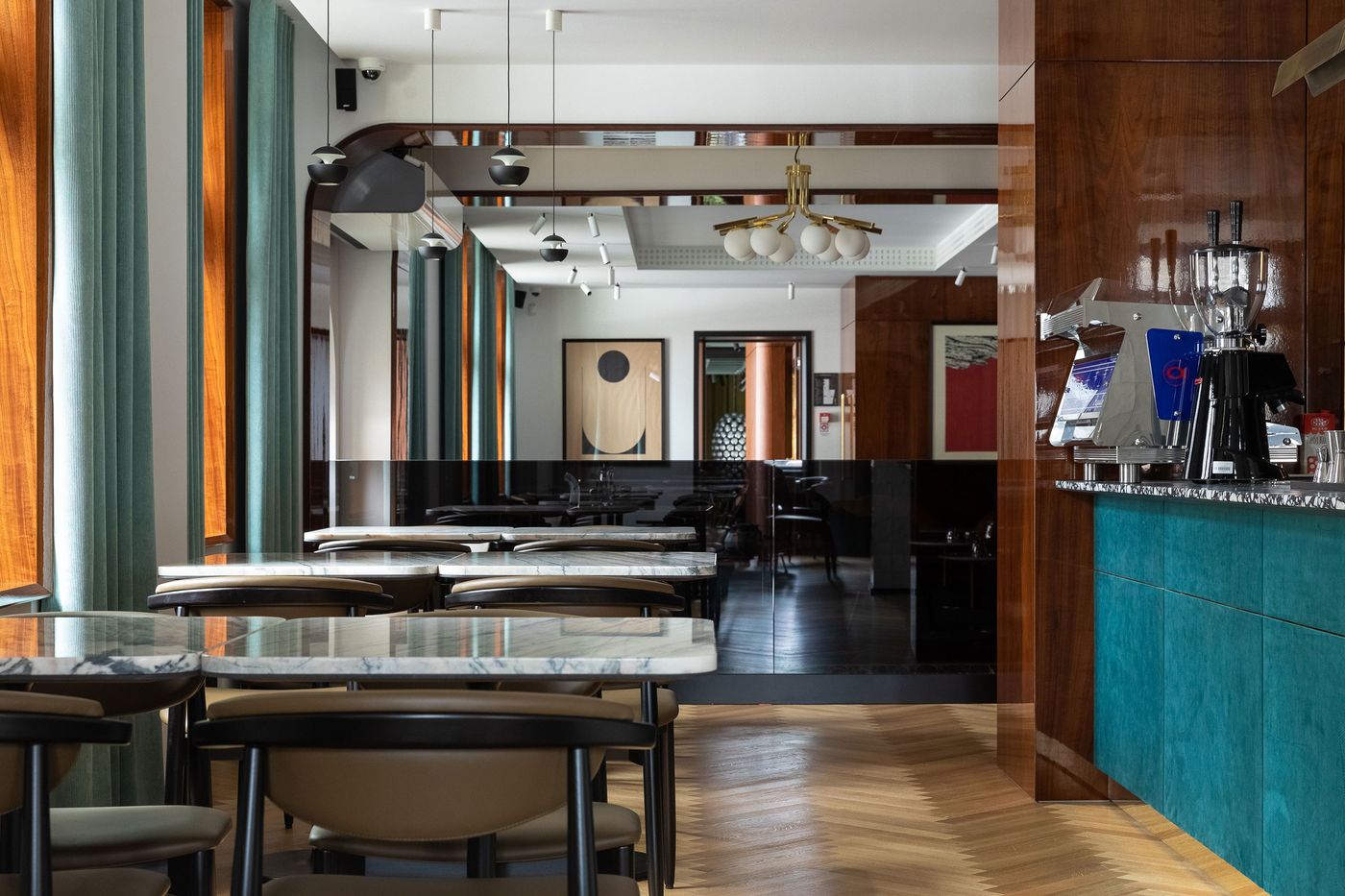
Photography by Marks Litvjakovs.
Developed in the late 19th and early 20th centuries, Riga’s “Quite Centre” or Art Nouveau district as it’s known as, combines beautiful architecture, wide leafy boulevards and lush parks, including Viestura Park, the city’s oldest, next to which the hotel is located. Also overlooking the aptly named Washington Square, the hotel stands amid a verdant setting which the designers have subtly complemented by painting the building in black and adding brass window frames. Featuring a similar palette, the new-built extension is harmoniously combined with the century-old edifice despite its modern architecture.
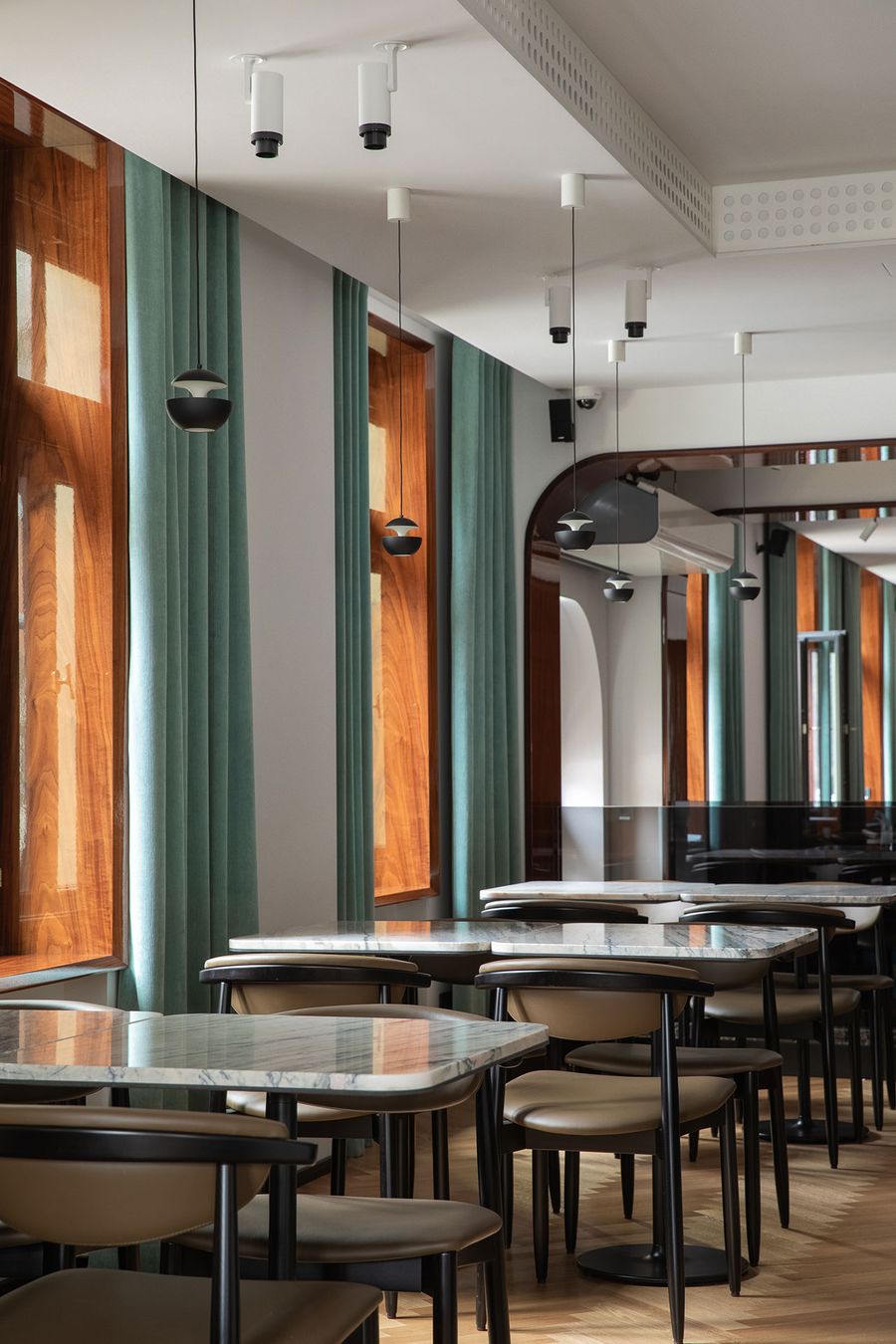
Photography by Marks Litvjakovs.
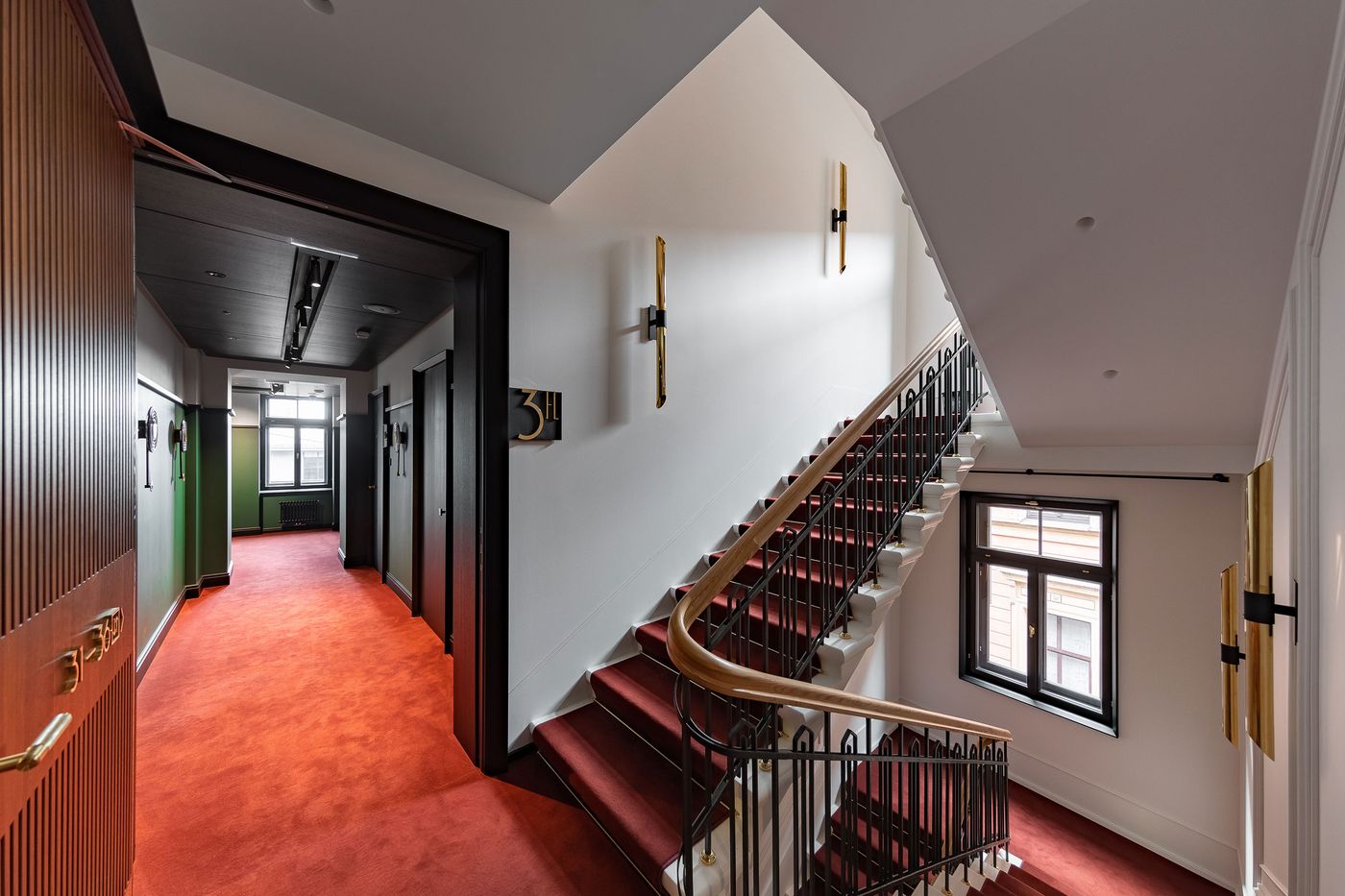
Photography by Marks Litvjakovs.
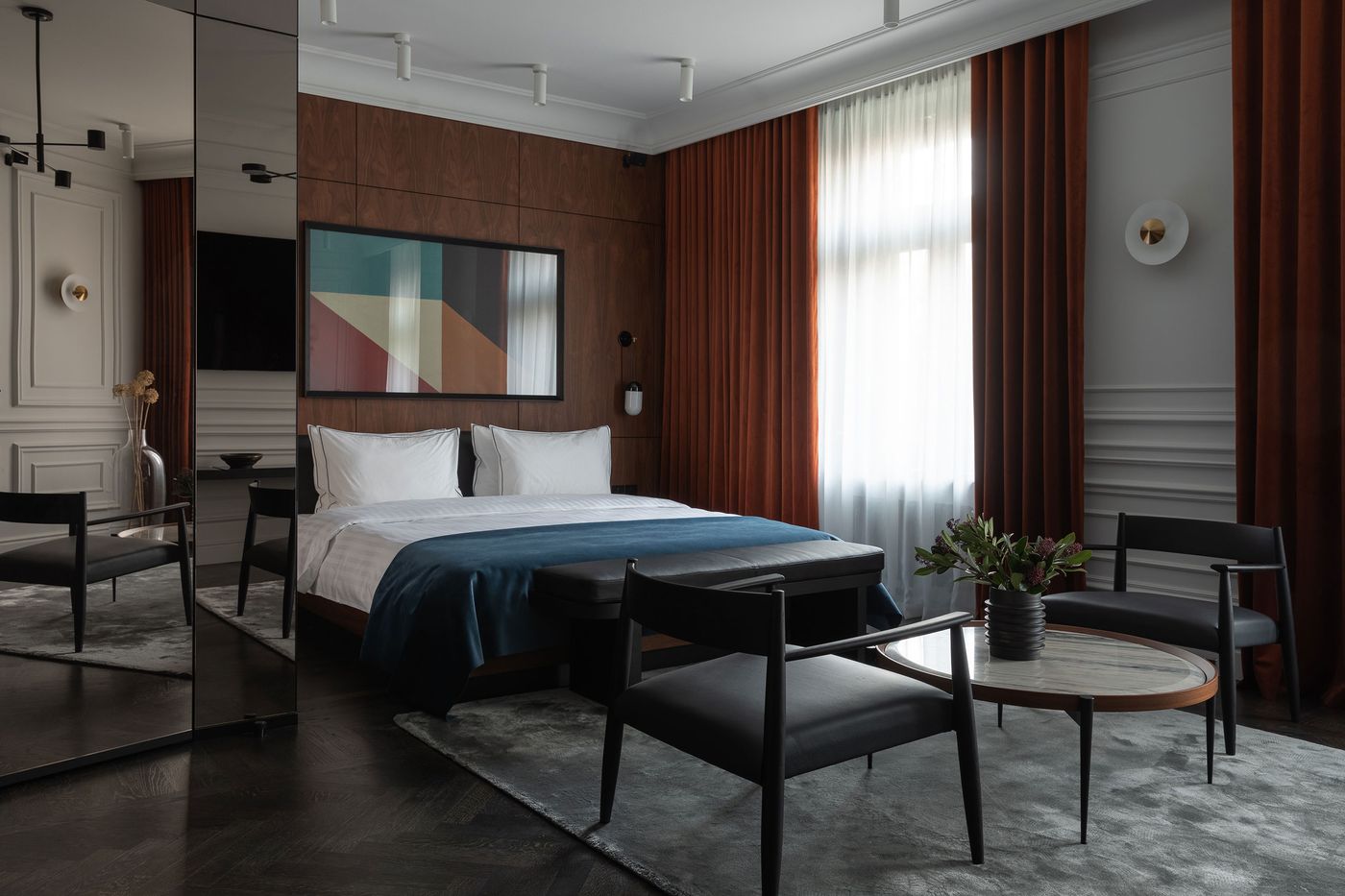
Photography by Marks Litvjakovs.
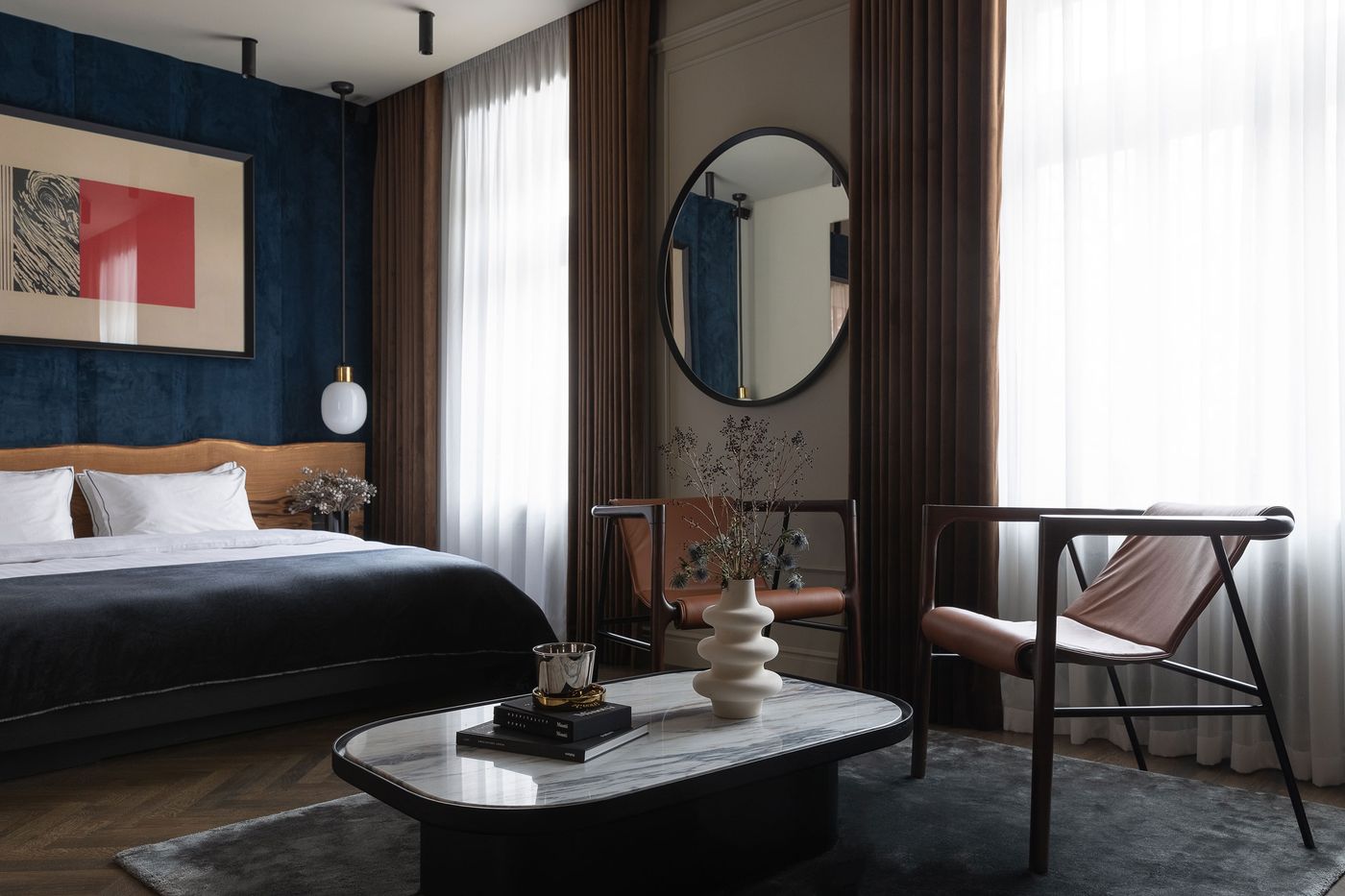
Photography by Marks Litvjakovs.
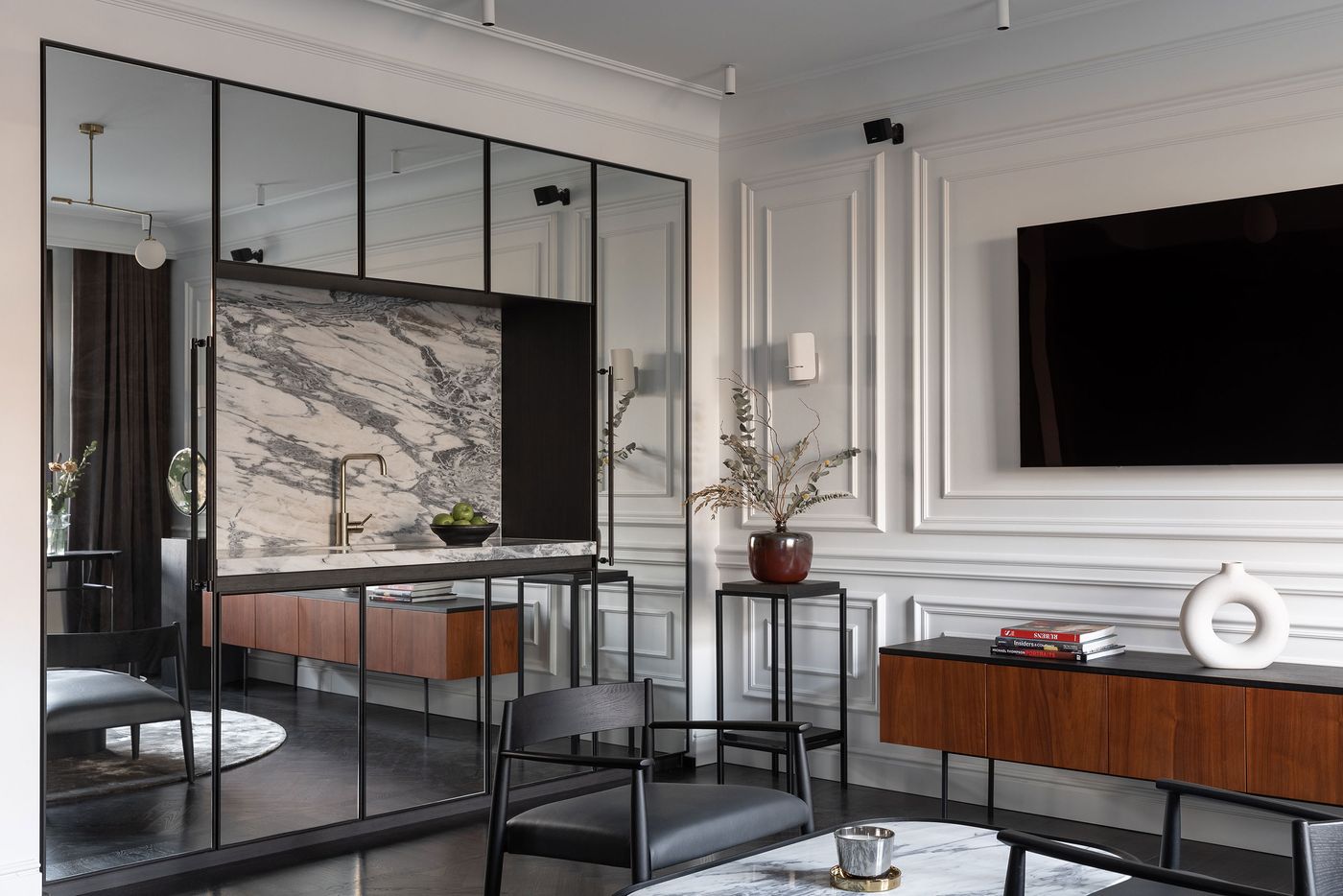
Photography by Marks Litvjakovs.
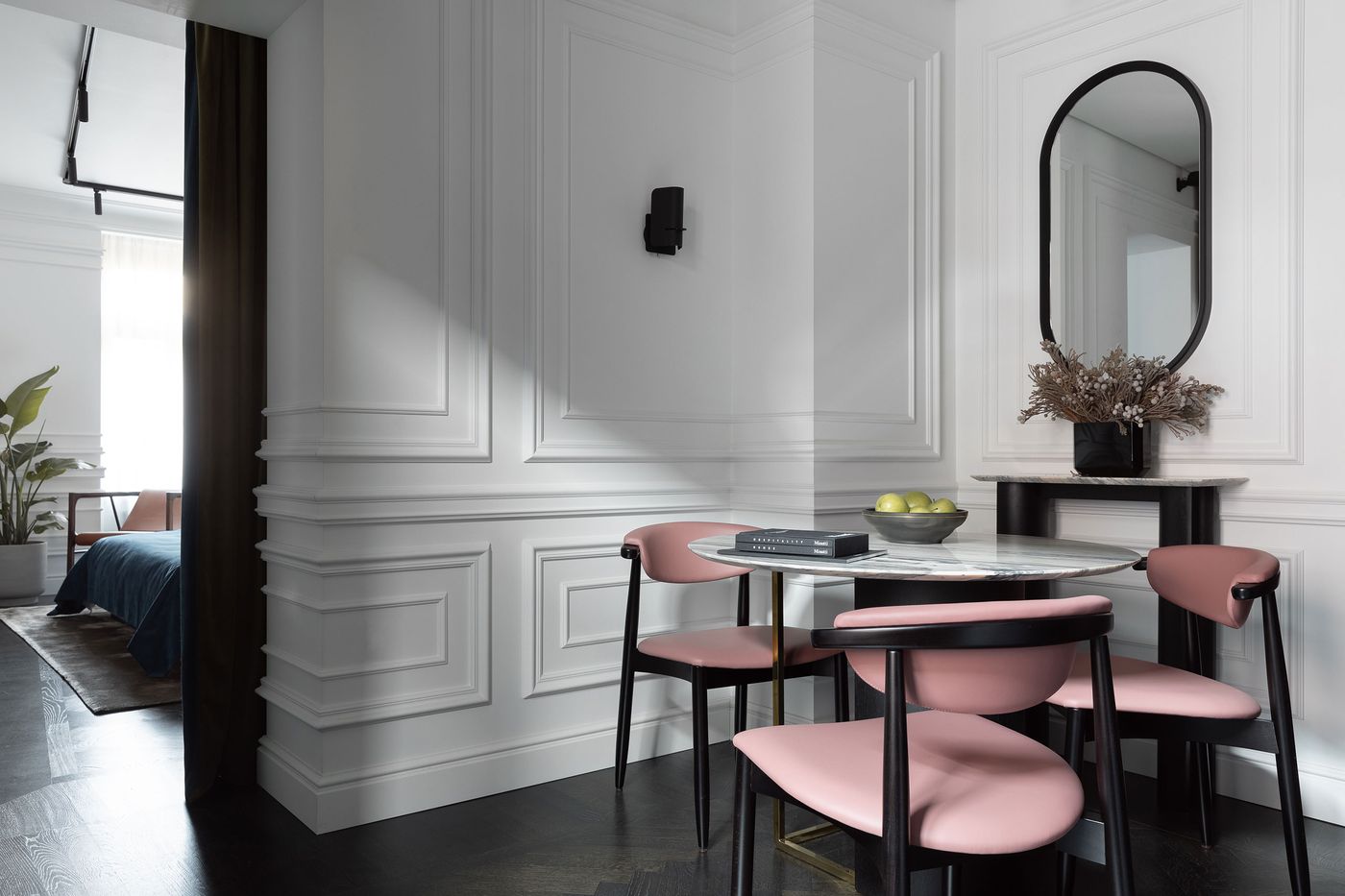
Photography by Marks Litvjakovs.
The complementary mix of modern and historic elements also serves as the basis of the hotel’s interior design. Restored ceiling and wall mouldings and parquet floors that attest to the building’s Art Nouveau architectural heritage are combined with mid-century modern references like wood wall panelling and curved furnishings. Soothing dark colours, sumptuous textures and noble materials like marble, brass and wood imbue the spaces with a sense of relaxed sophistication while conjuring the building’s storied past – most notably, that it served as the US Embassy in Latvia in the 1930s.
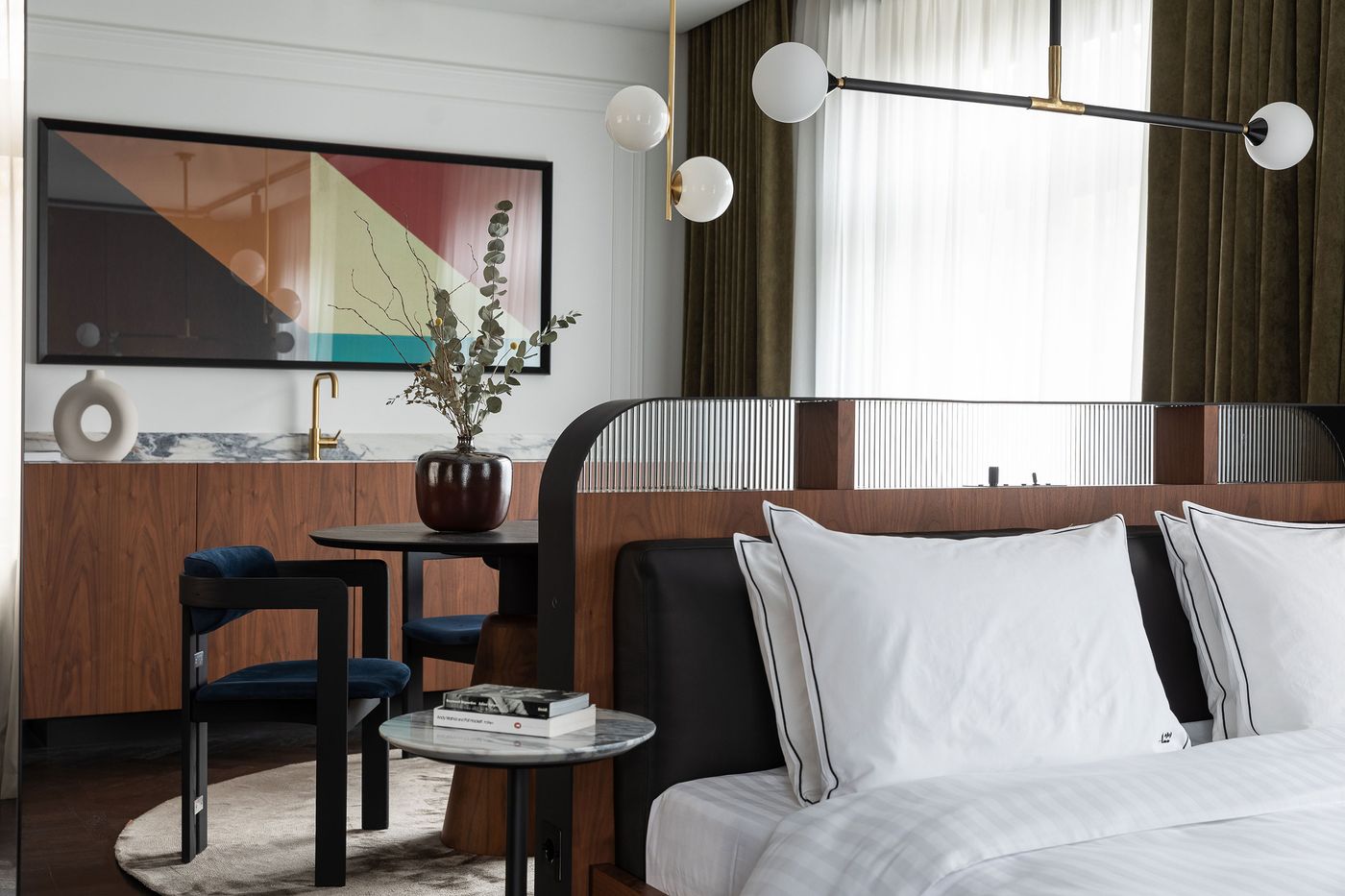
Photography by Marks Litvjakovs.
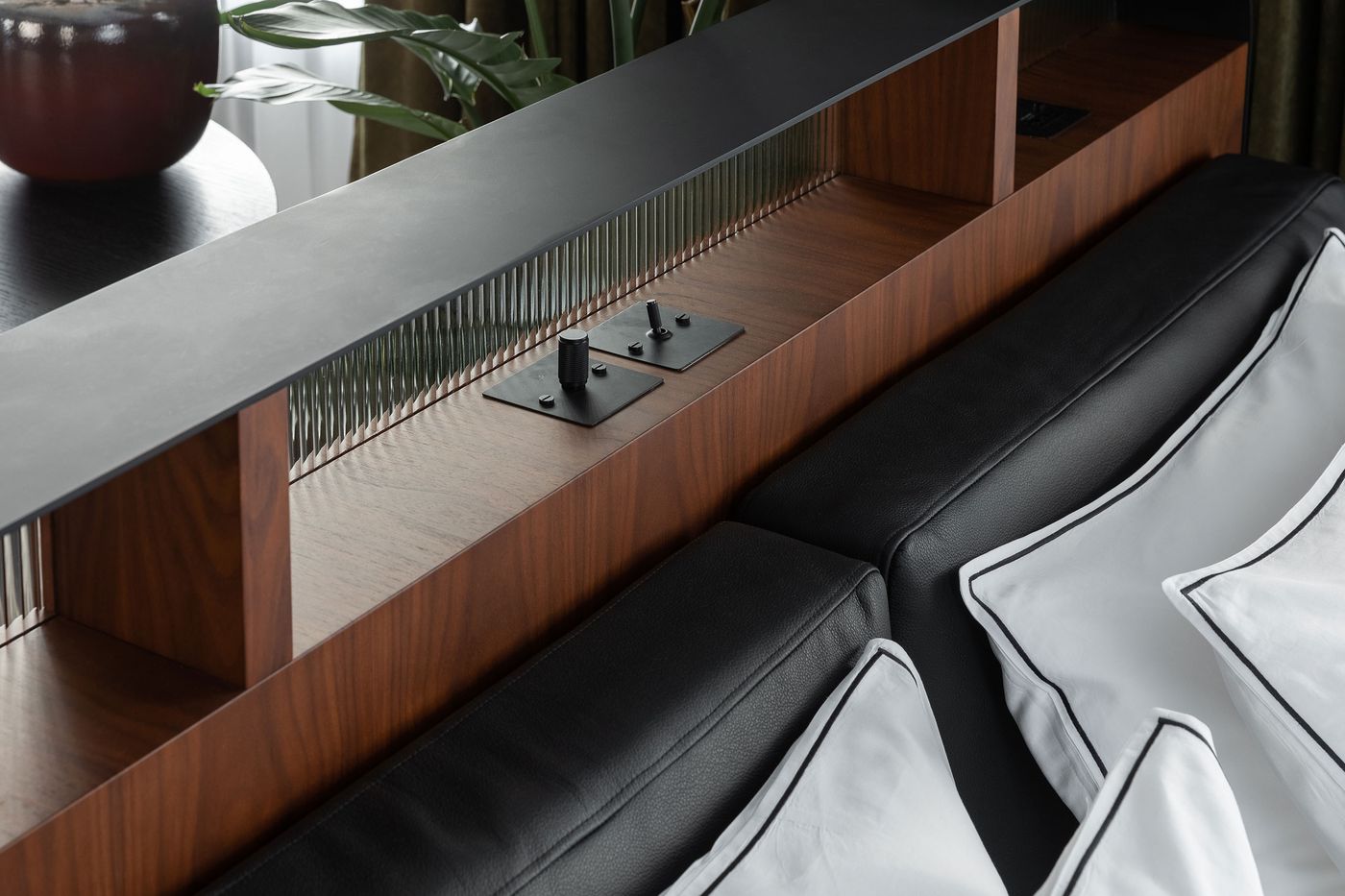
Photography by Marks Litvjakovs.
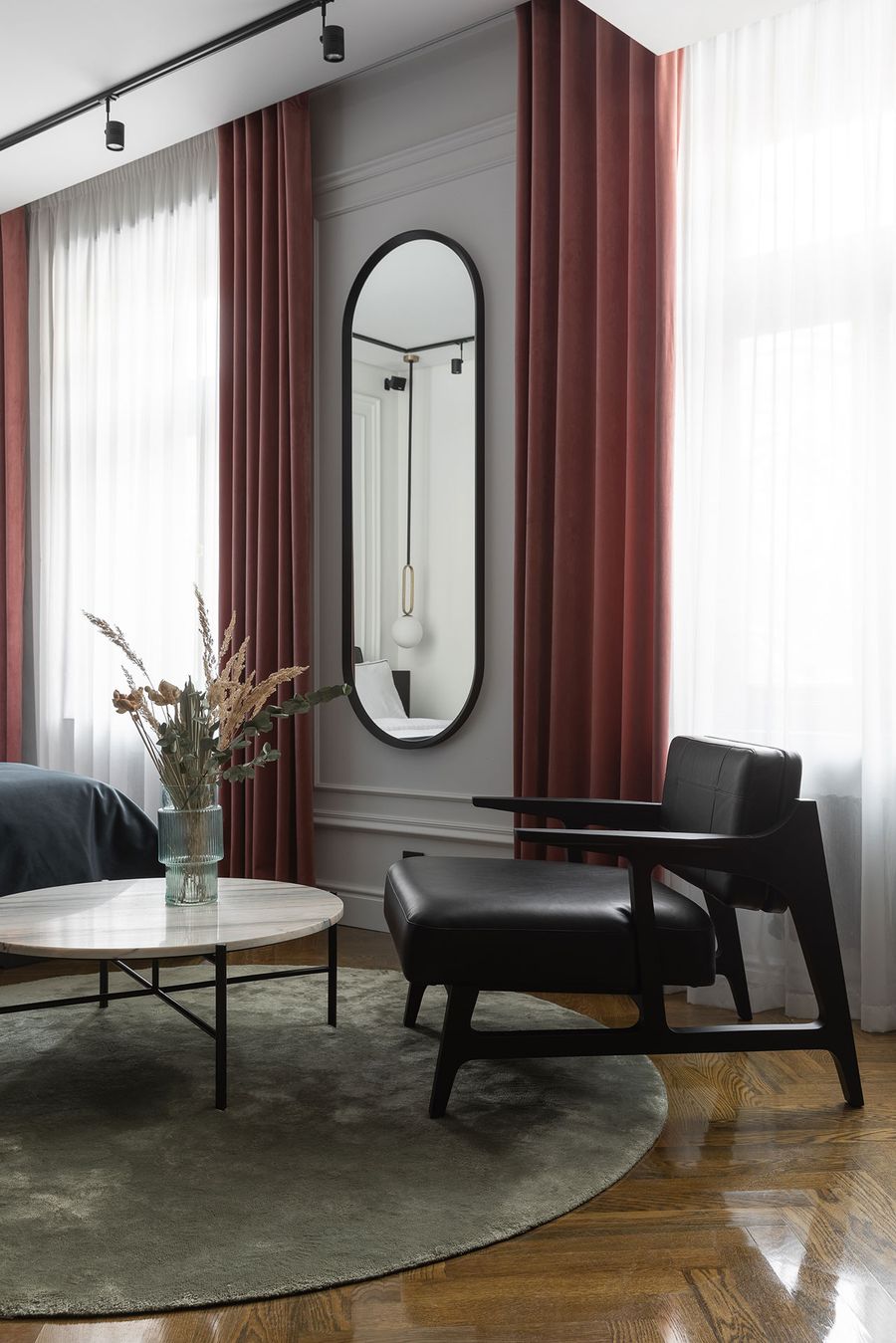
Photography by Marks Litvjakovs.
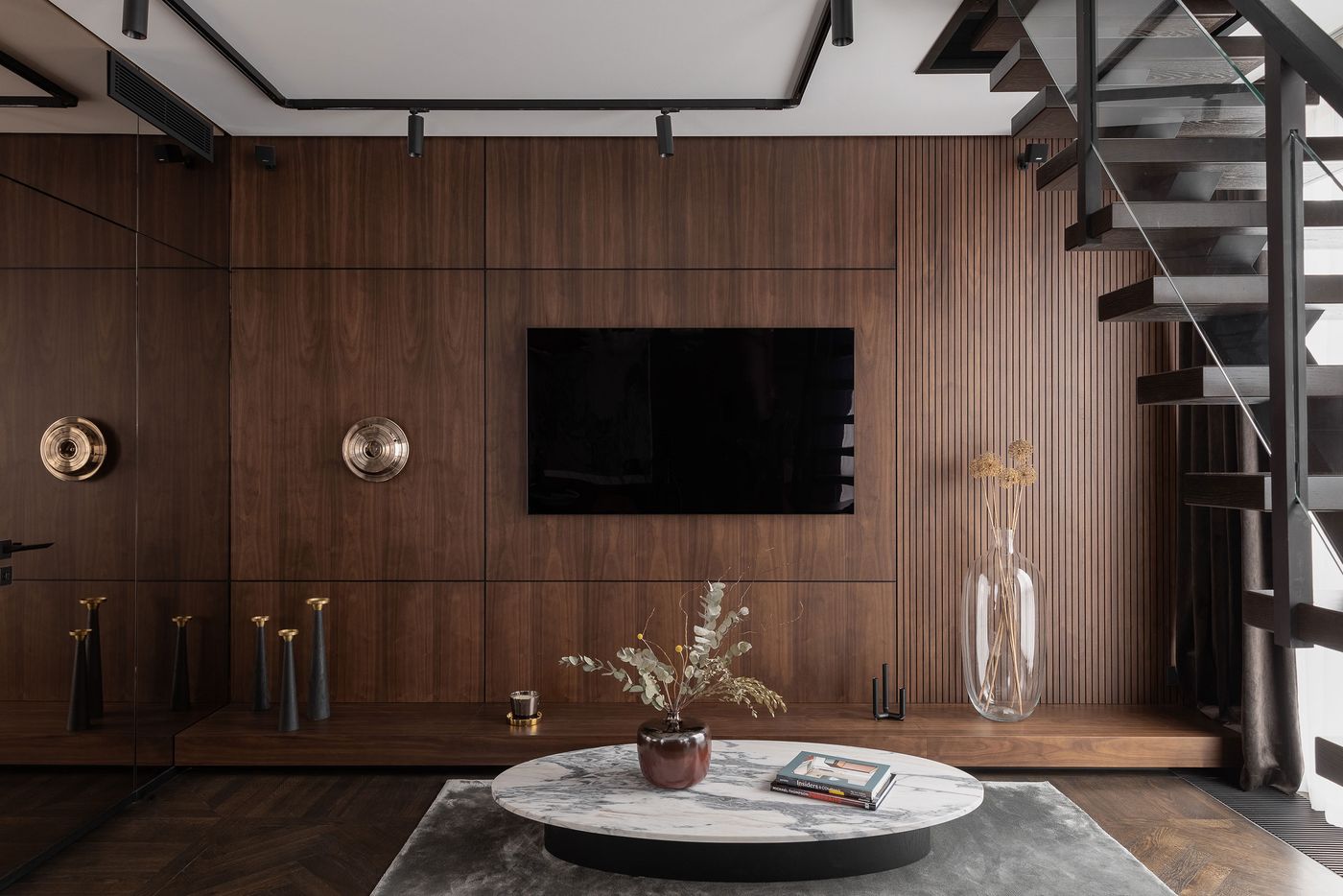
Photography by Marks Litvjakovs.
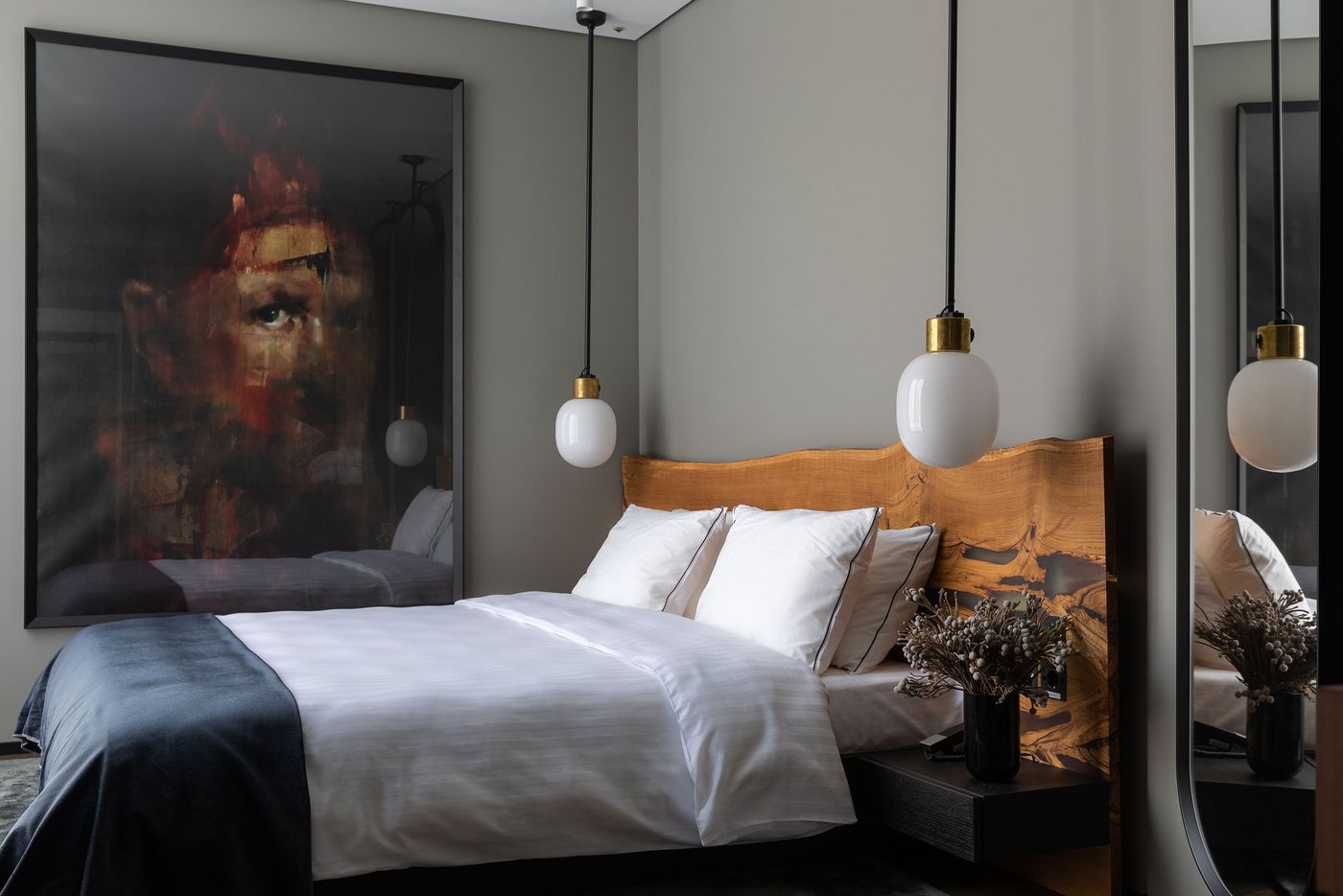
Photography by Marks Litvjakovs.
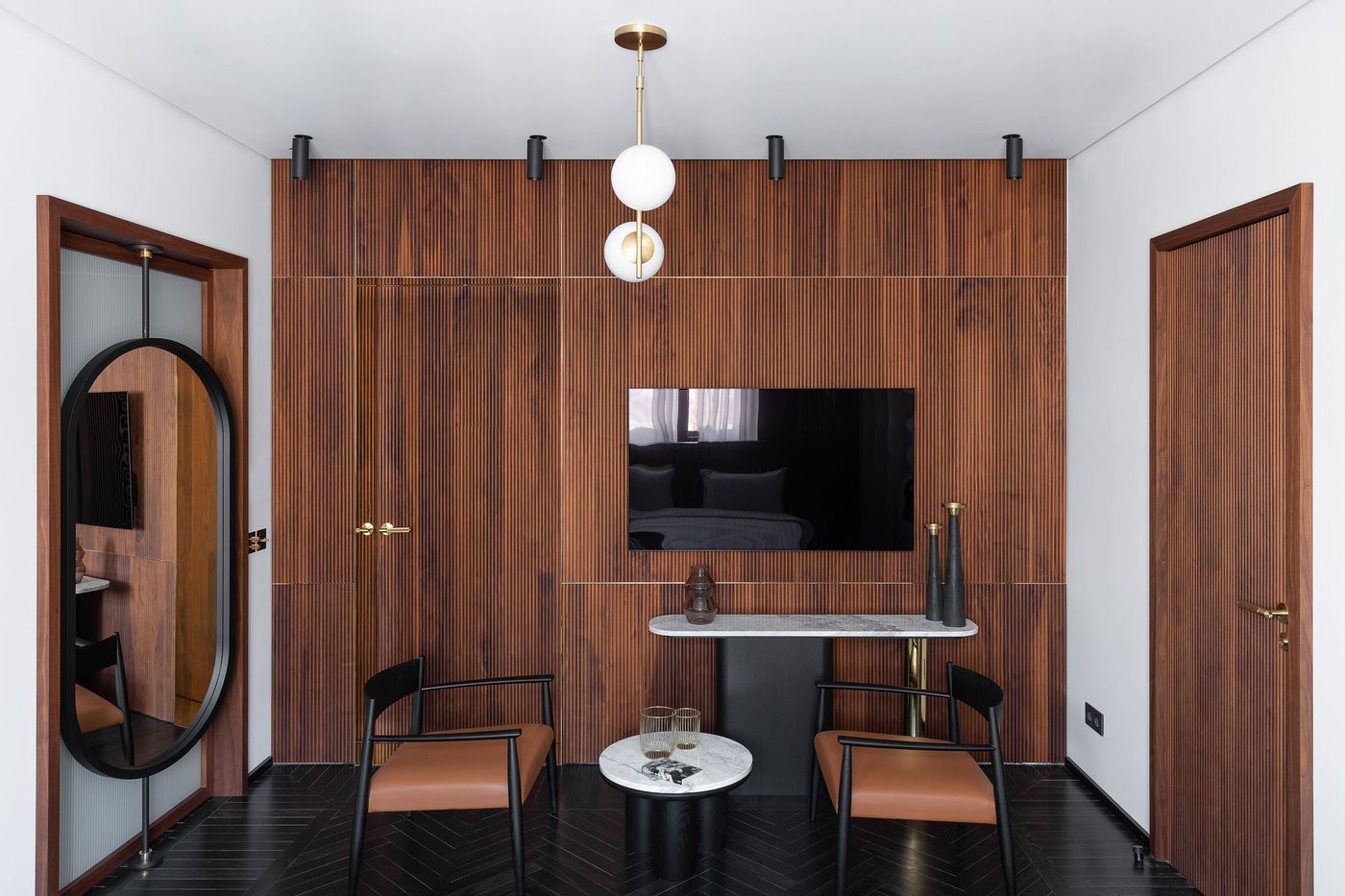
Photography by Marks Litvjakovs.
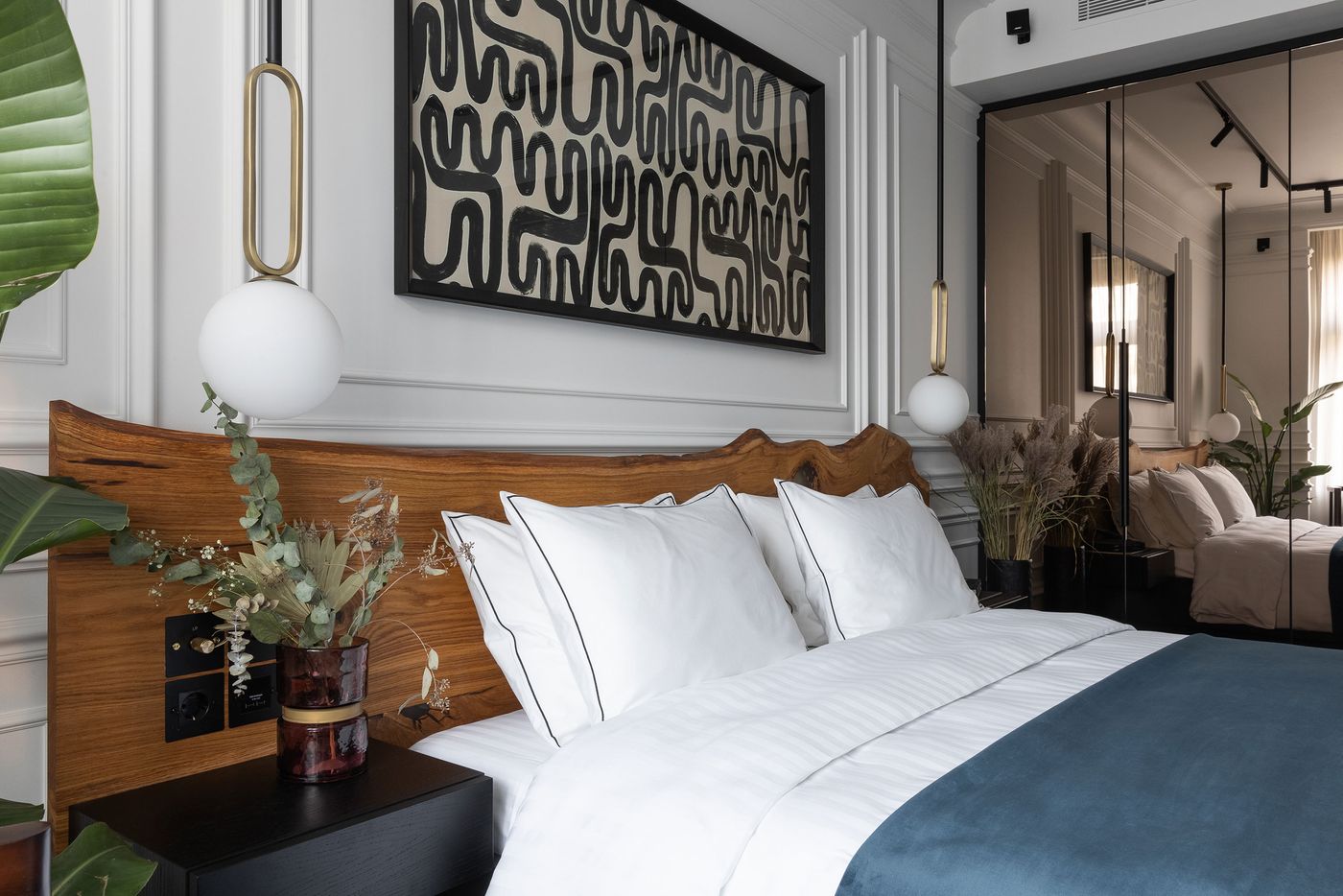
Photography by Marks Litvjakovs.
While the US Embassy closed in 1940 when the Soviet Union occupied the Baltic States, one year before that, in 1939, it hosted future president John F. Kennedy who stayed here for a few days as part of a wider European tour. An undergraduate student at Harvard at the time, the prominence and connections of his family (his father was the US Ambassador in the United Kingdom at the time) meant he was no simple visitor. In fact, the three-room accommodation he occupied was purpose-built prior to his arrival to ensure for a comfortable stay. Located below the mansard roof of the original building on No. 22 Ausekla Street, where the hotel takes its name from, the renovated space now fittingly serves as the hotel’s presidential suite.
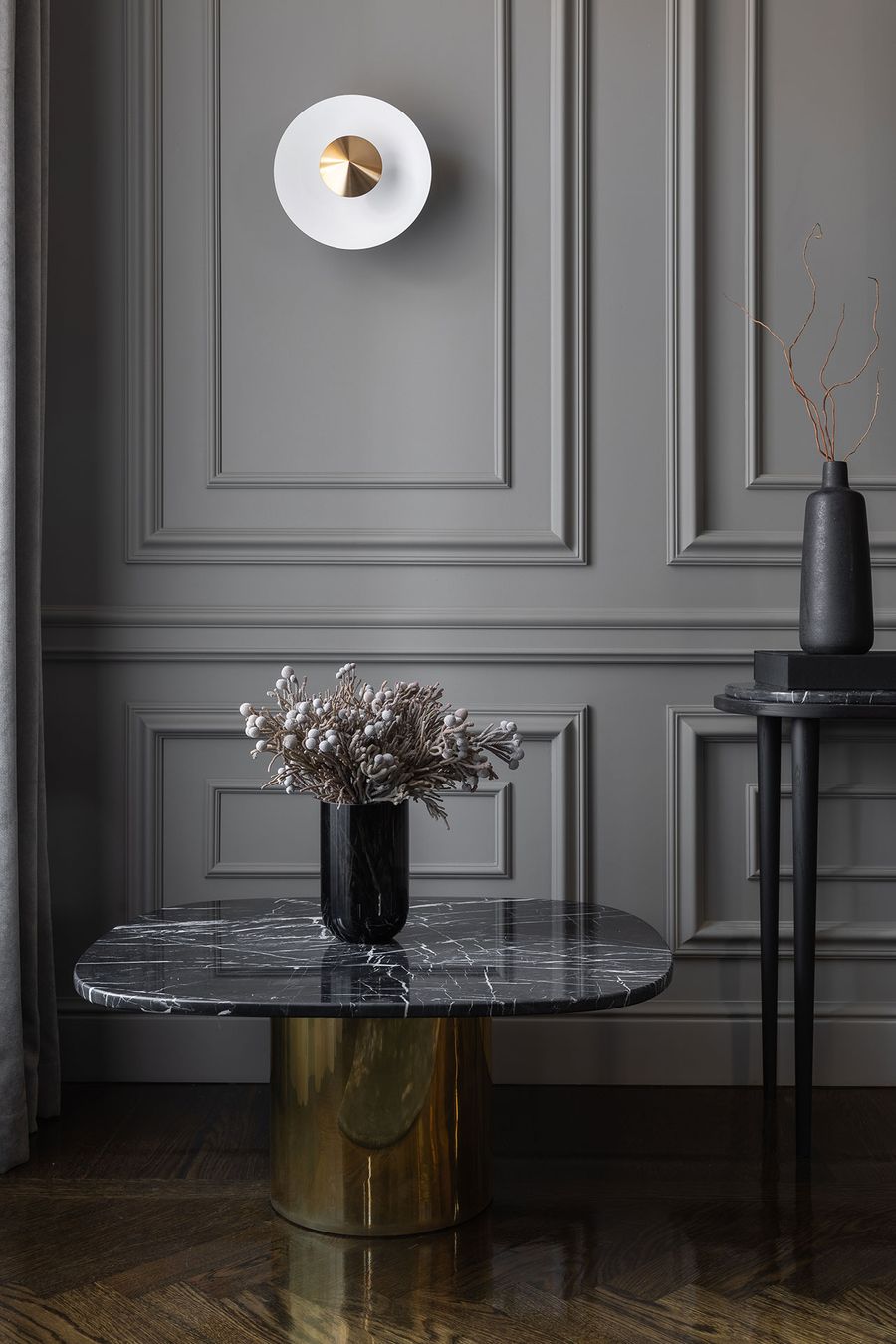
Photography by Marks Litvjakovs.
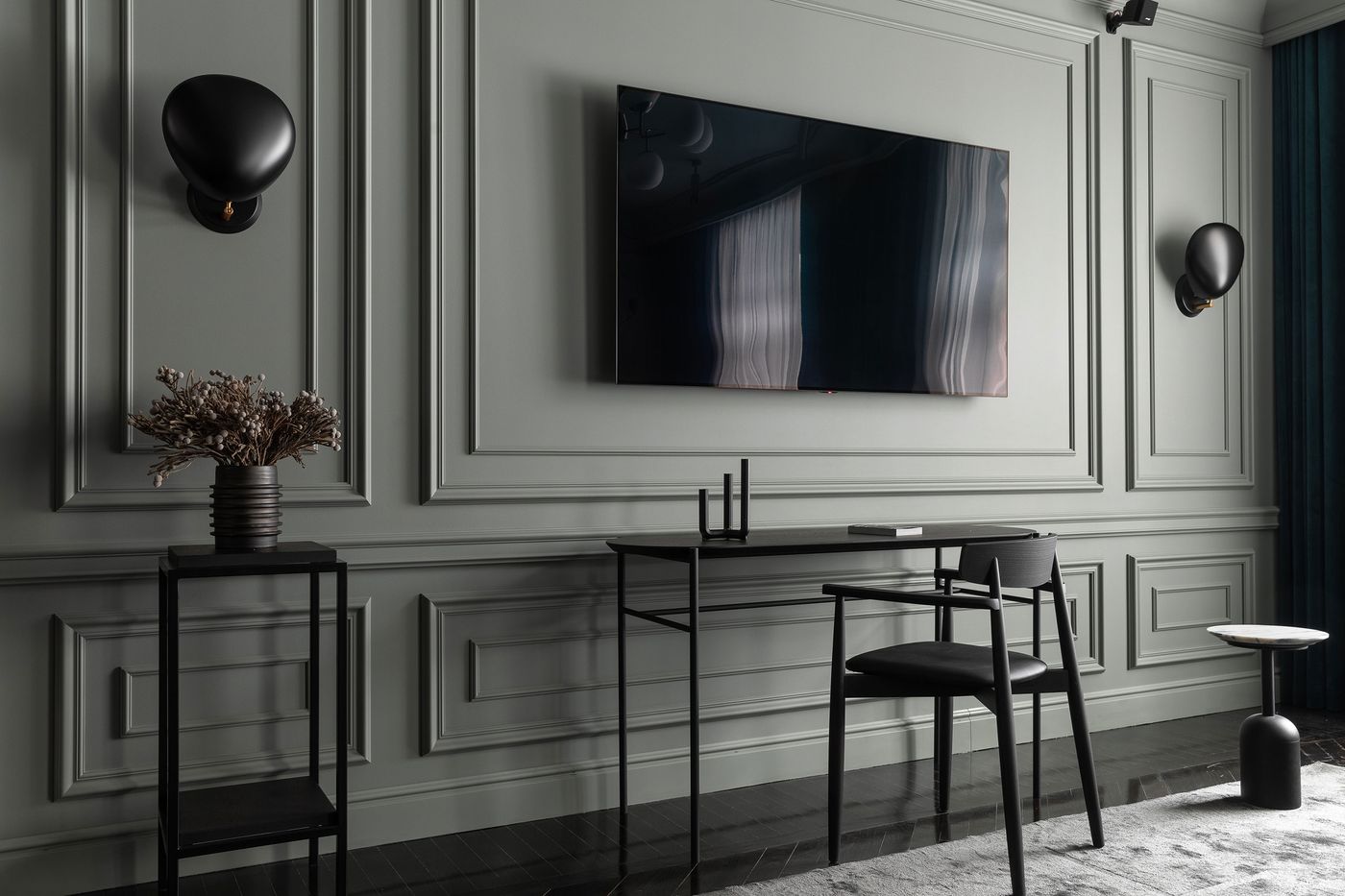
Photography by Marks Litvjakovs.
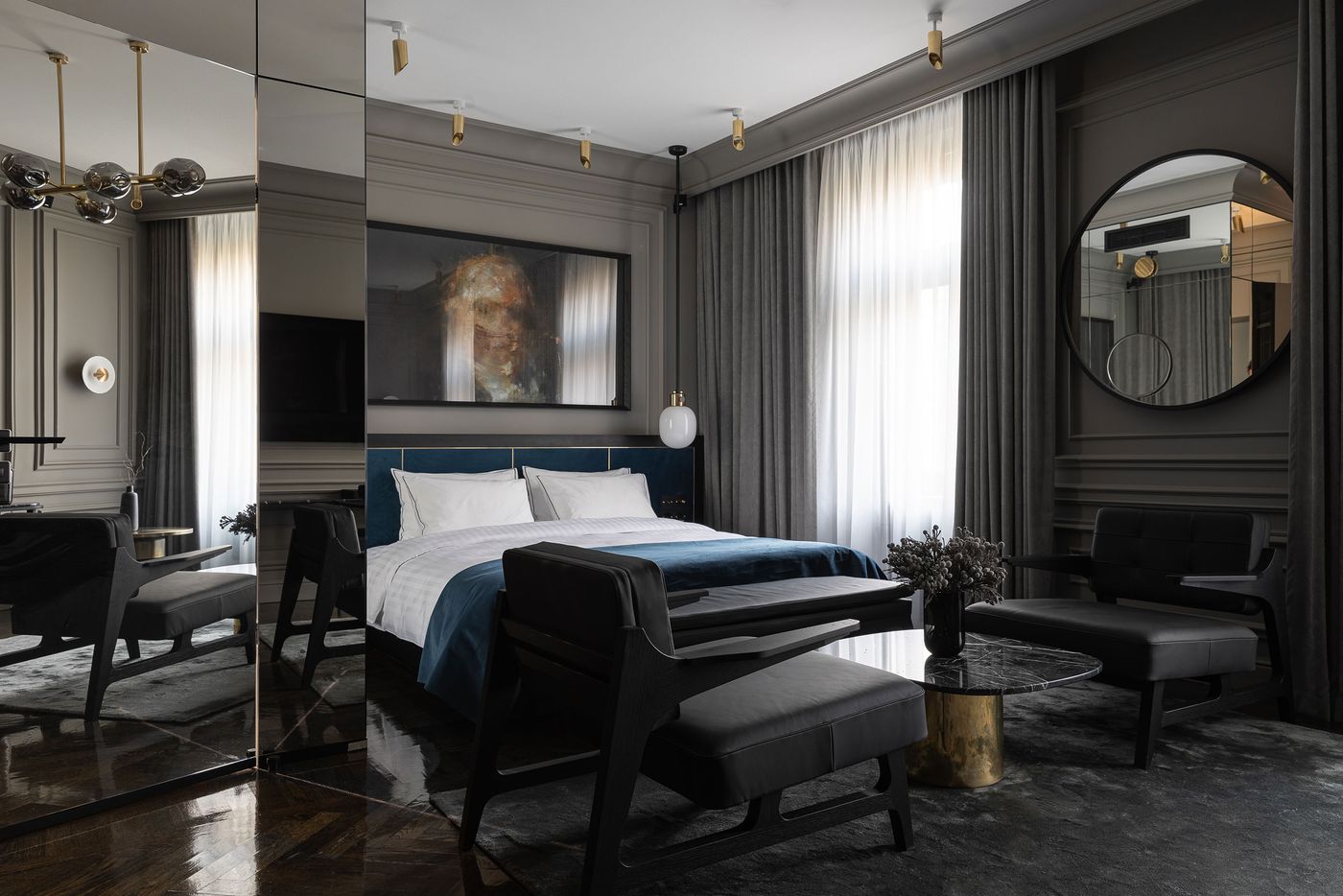
Photography by Marks Litvjakovs.
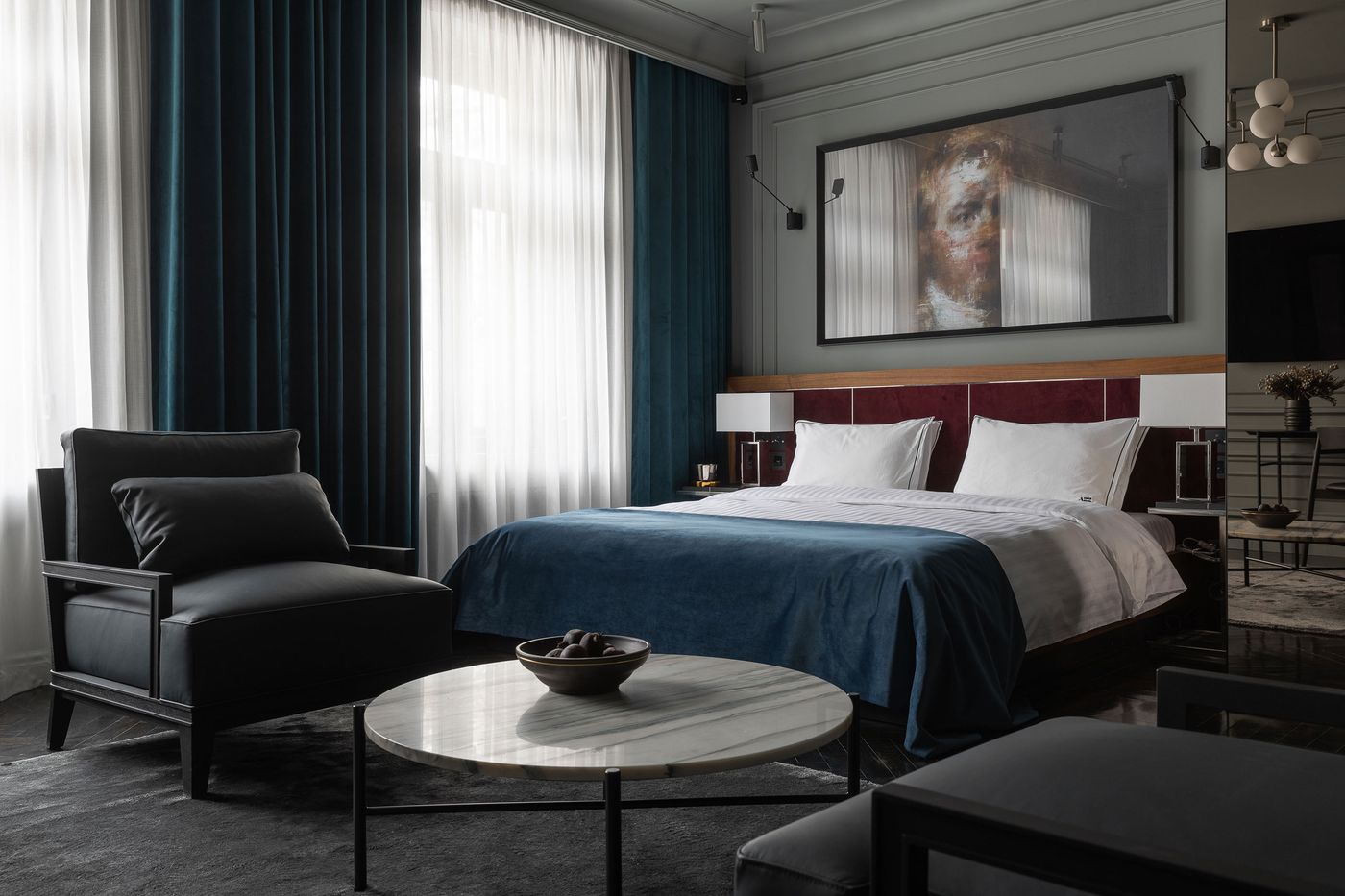
Photography by Marks Litvjakovs.
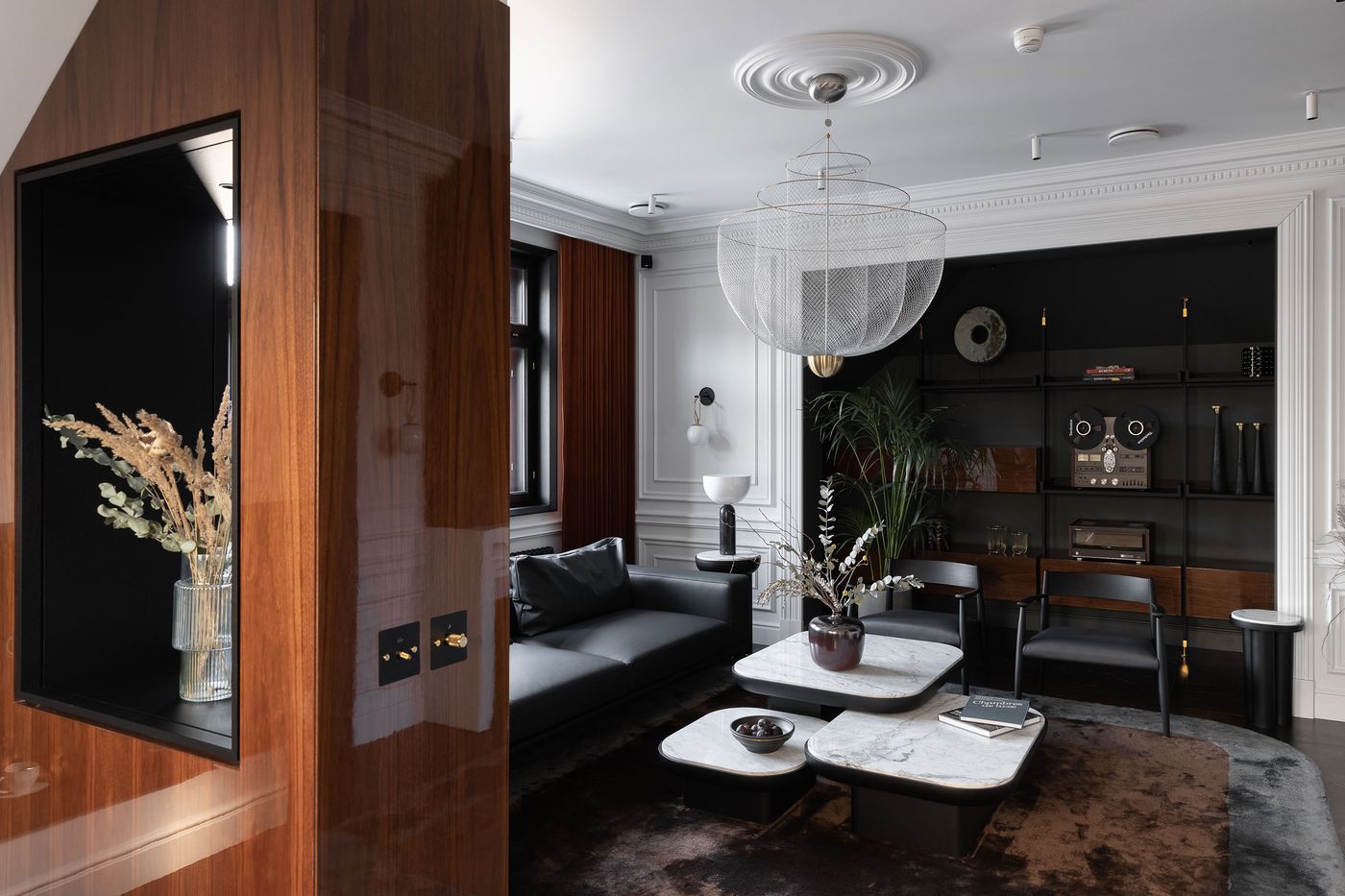
Photography by Marks Litvjakovs.
Featuring a spacious living and dining room, two bedrooms and a large bathroom, plus soothing views of the park, the 111-square-metre Presidential Suite encapsulates the hotel’s unique brand of retro-modern chic, combining pre-war grandeur and mid-century modern elegance with contemporary amenities. White-painted walls and ceilings, dark-hued parquet floors and wooden furnishings, and grey-veined marble surfaces constitute a muted, black and white backdrop of understated lavishness while wood veneer panelling and plush fabrics in mahogany colours add warmth.
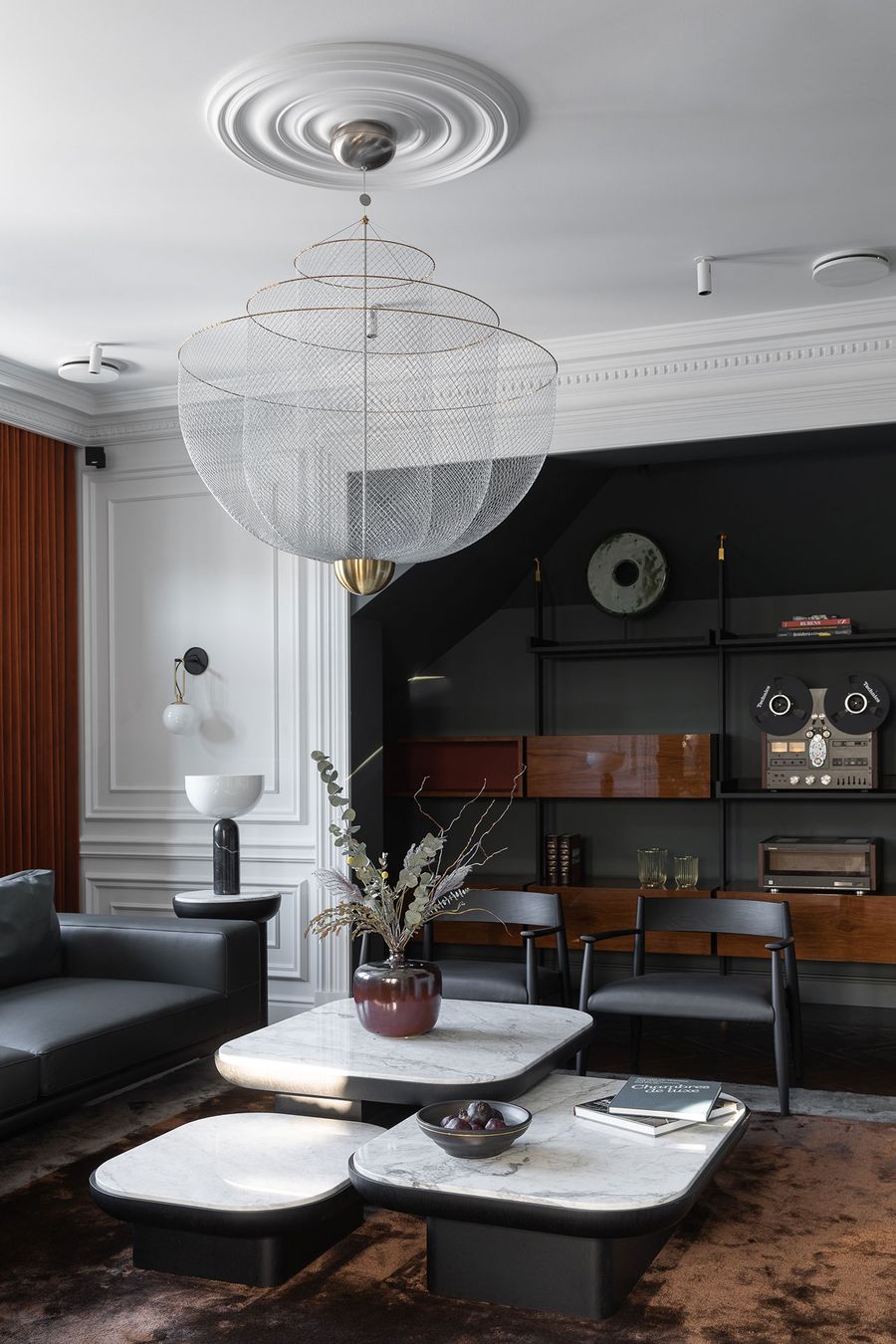
Photography by Marks Litvjakovs.
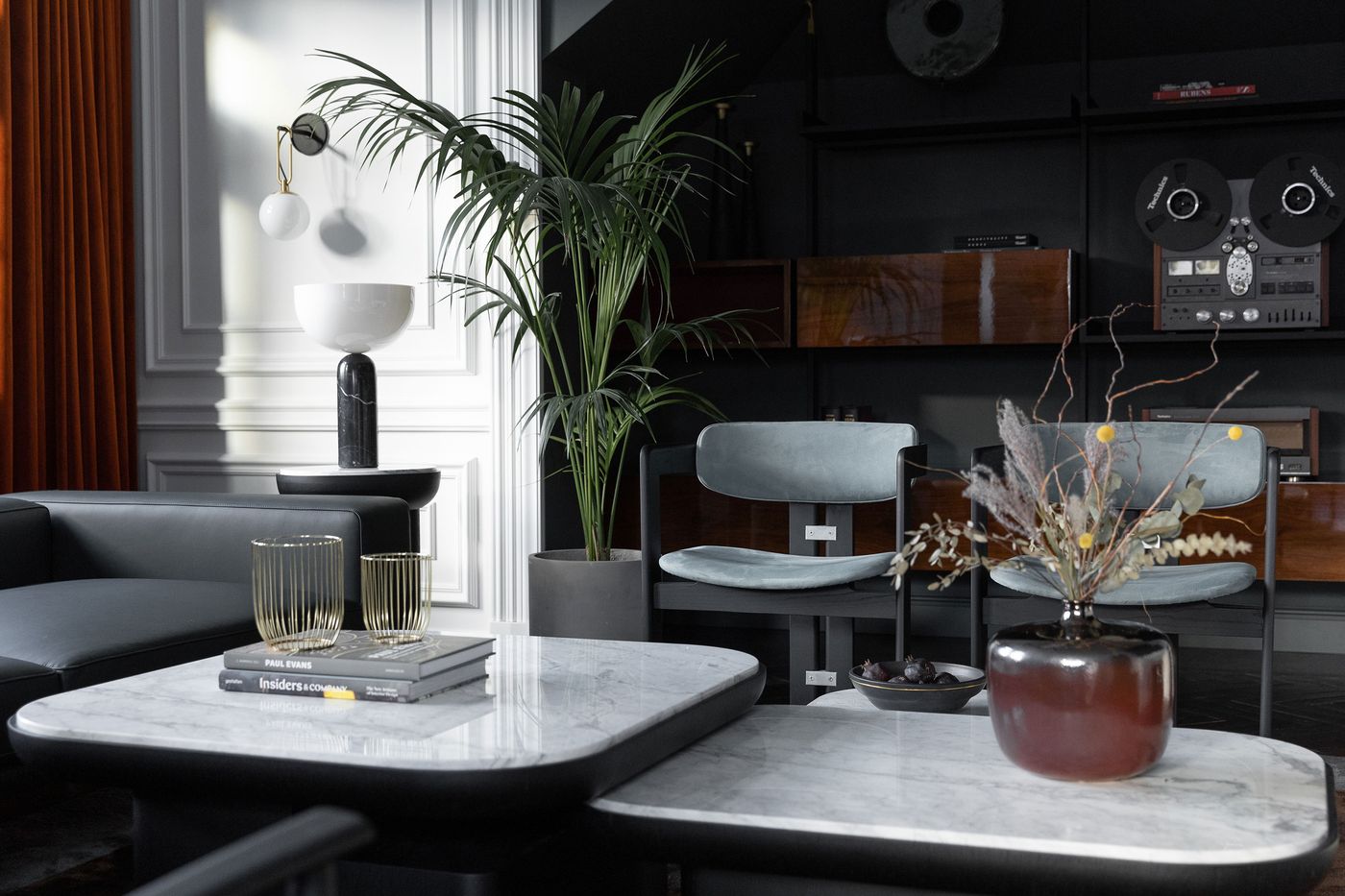
Photography by Marks Litvjakovs.
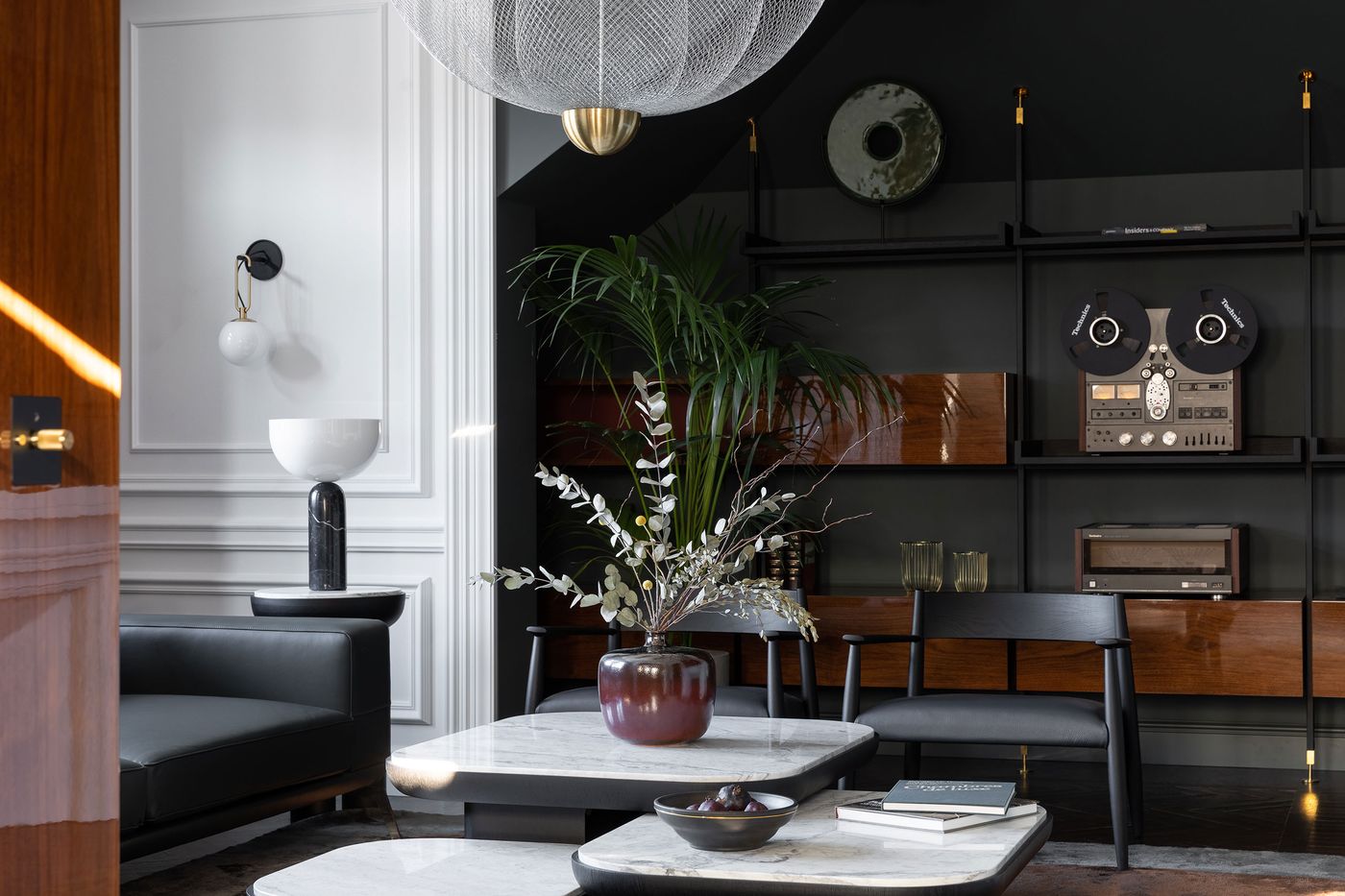
Photography by Marks Litvjakovs.
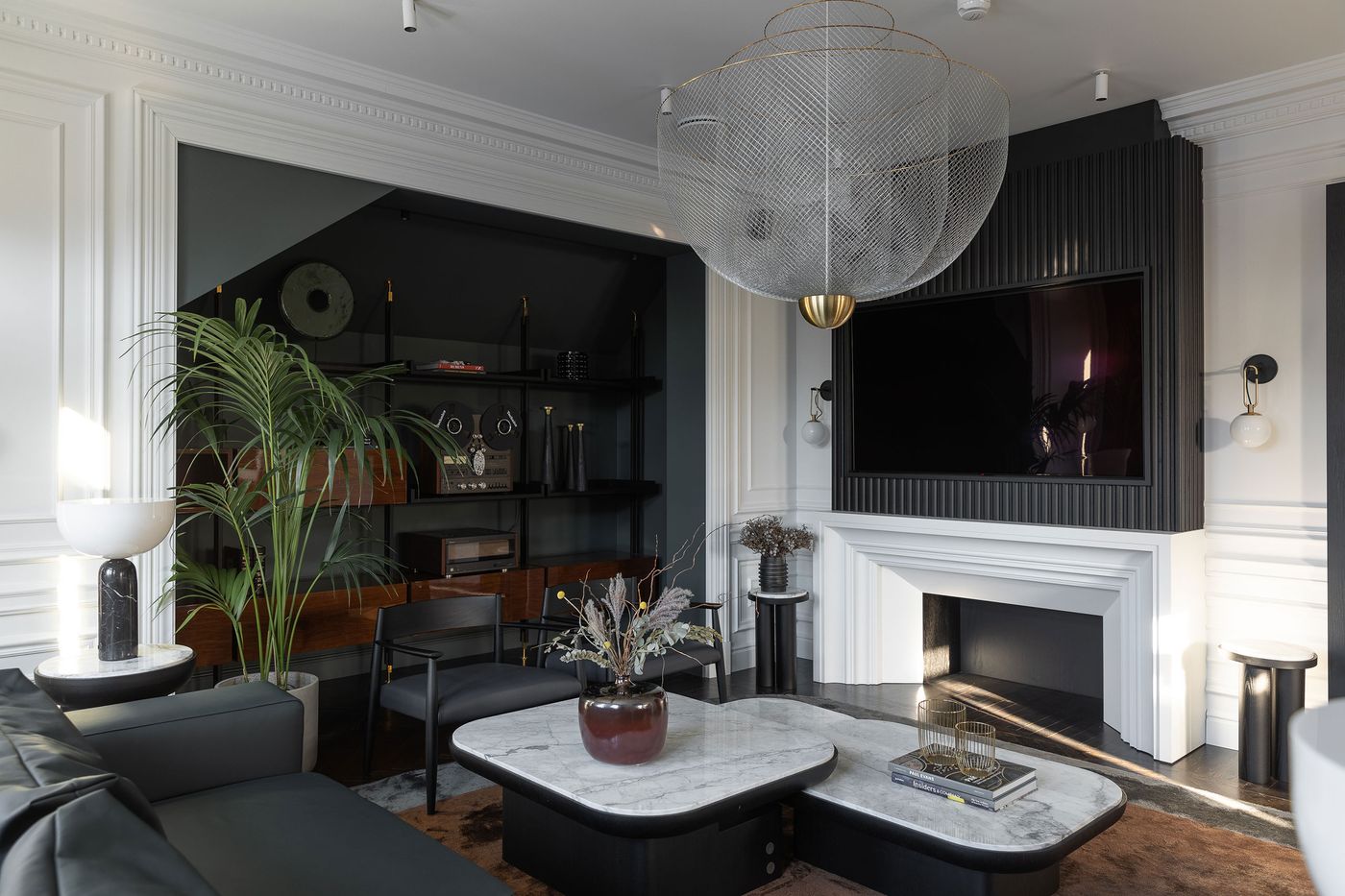
Photography by Marks Litvjakovs.
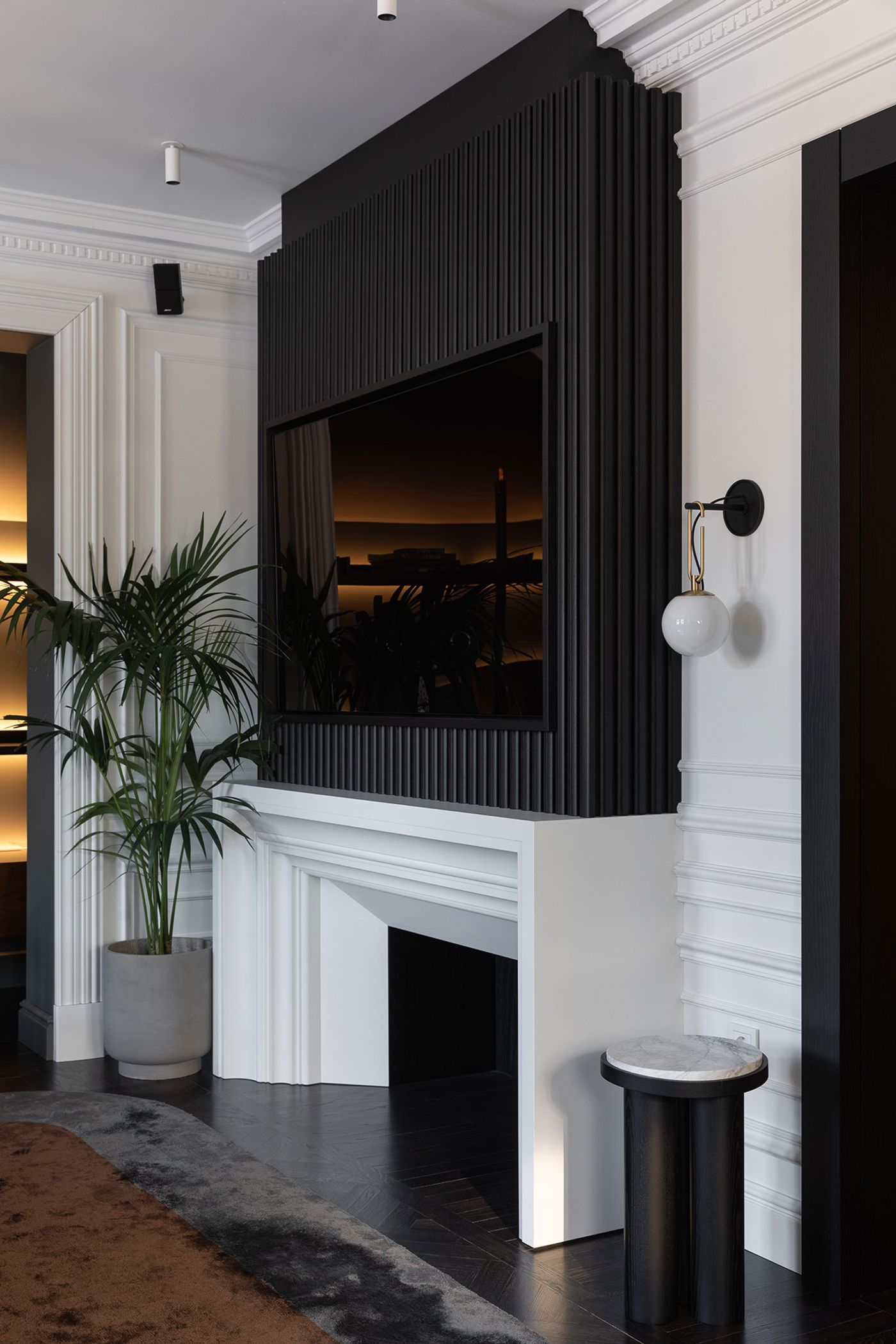
Photography by Marks Litvjakovs.
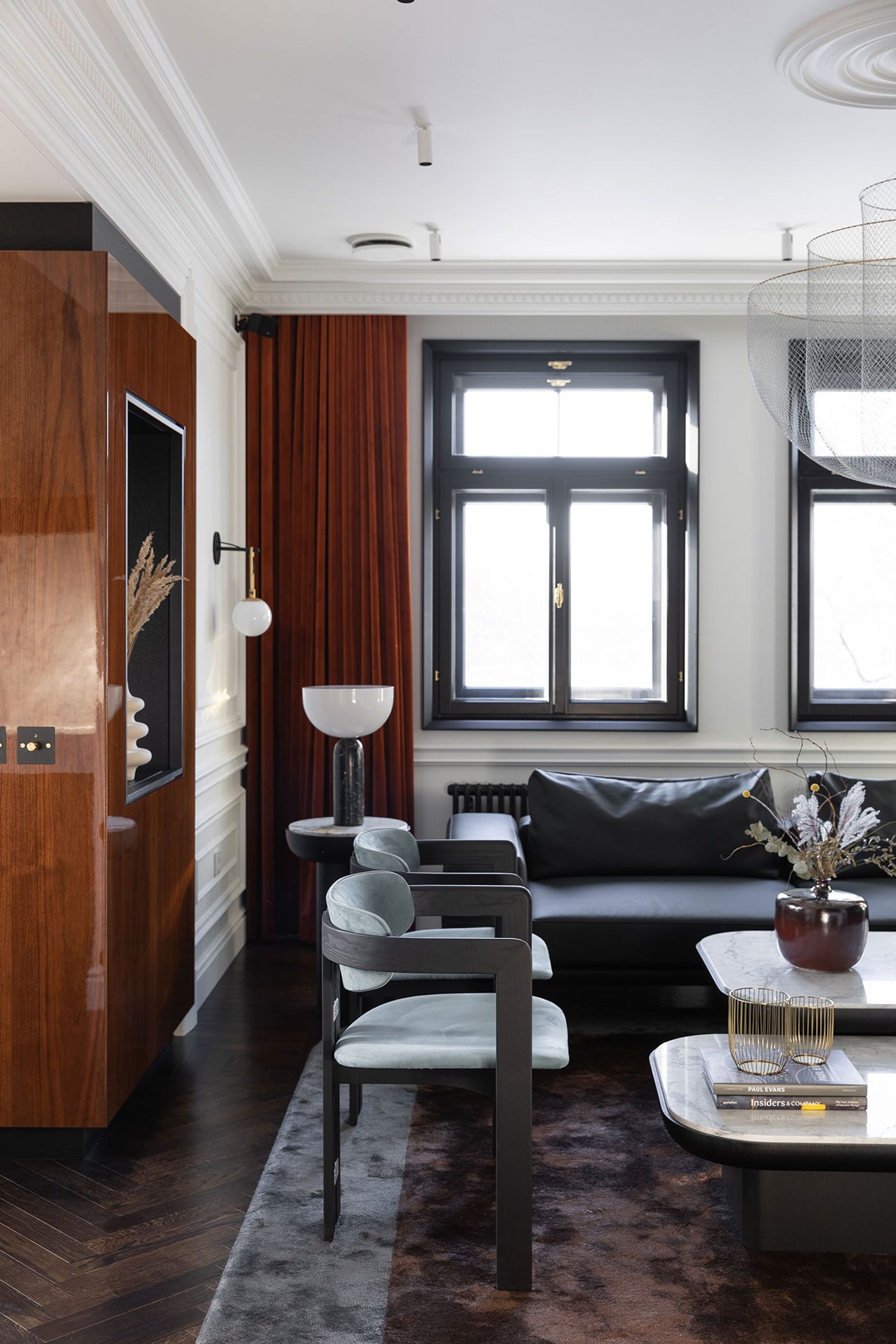
Photography by Marks Litvjakovs.
In the master bedroom, a custom-designed arched headboard upholstered in sage-hued synthetic suede is paired with Gubi’s Multi-Lite brass pendants designed by Louis Weisdorf in 1972 and rose-hued velvet curtains, while the master bathroom is a rhapsody of white marble, wood veneer and brass. The level of luxuriance may have increased since JFK stayed here—the technology certainly has, when you consider the state-of-the-art entertainment system that every room is equipped with—but we suspect that he would have still felt right at home if he visited today.
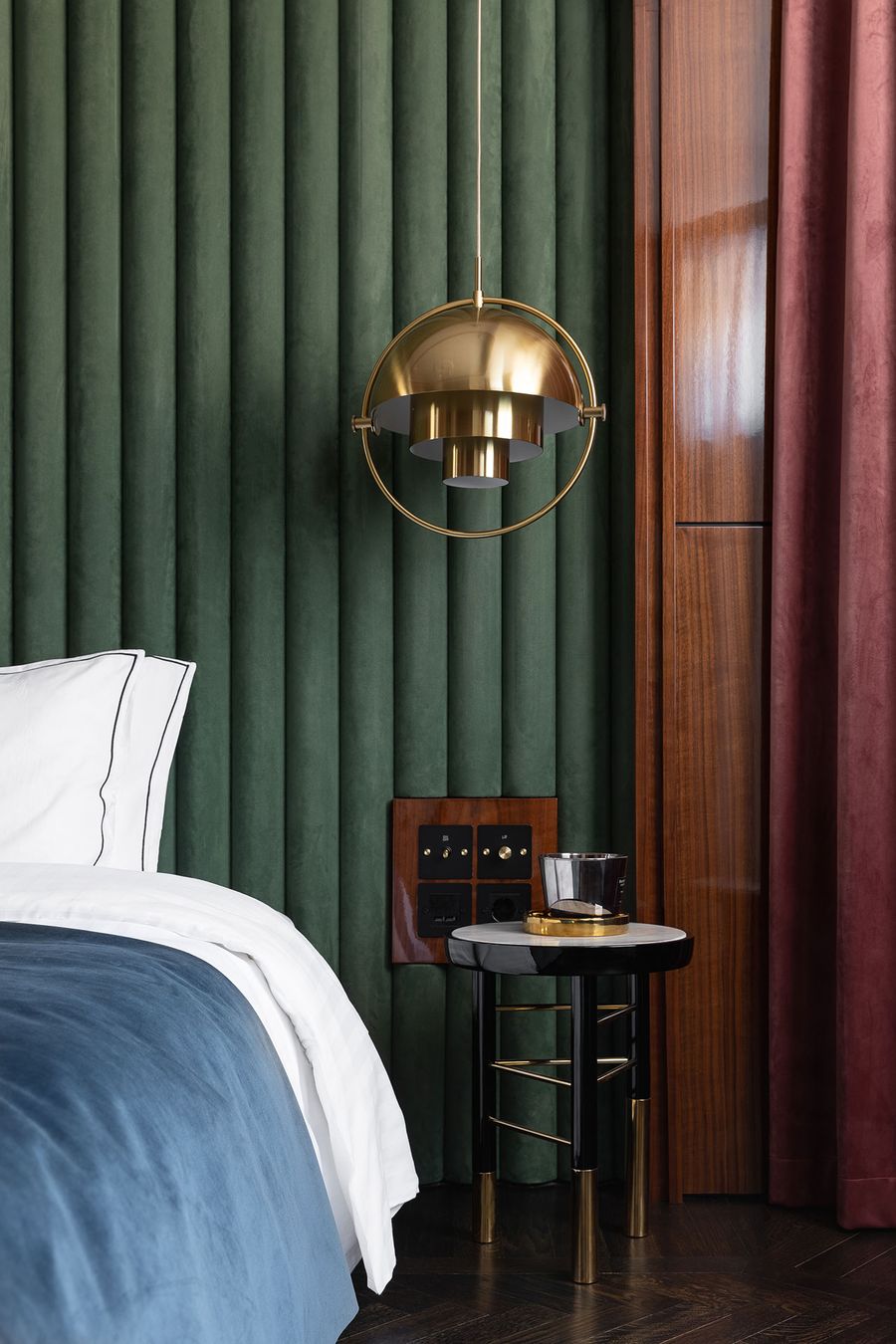
Photography by Marks Litvjakovs.
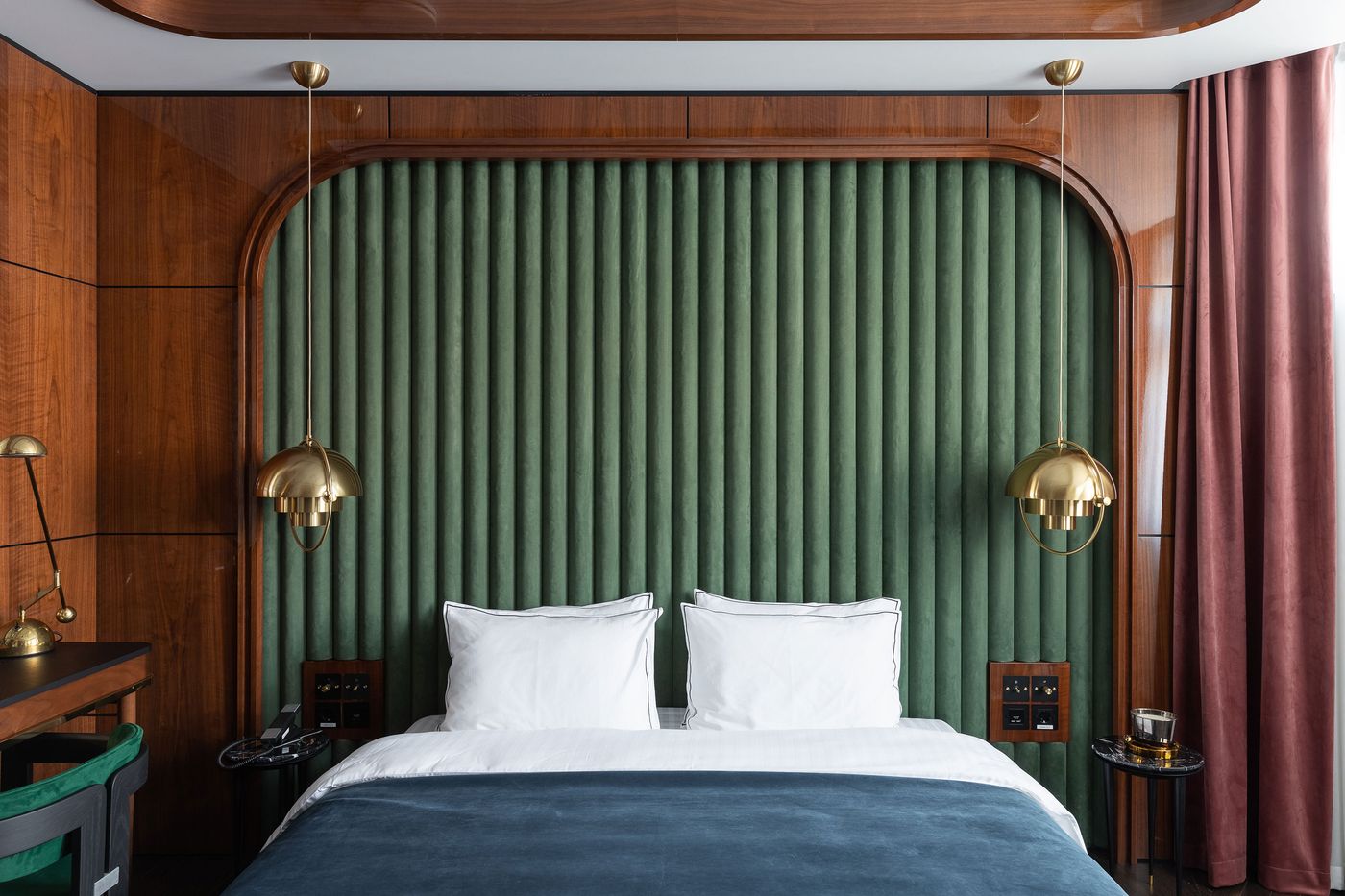
Photography by Marks Litvjakovs.

Photography by Marks Litvjakovs.
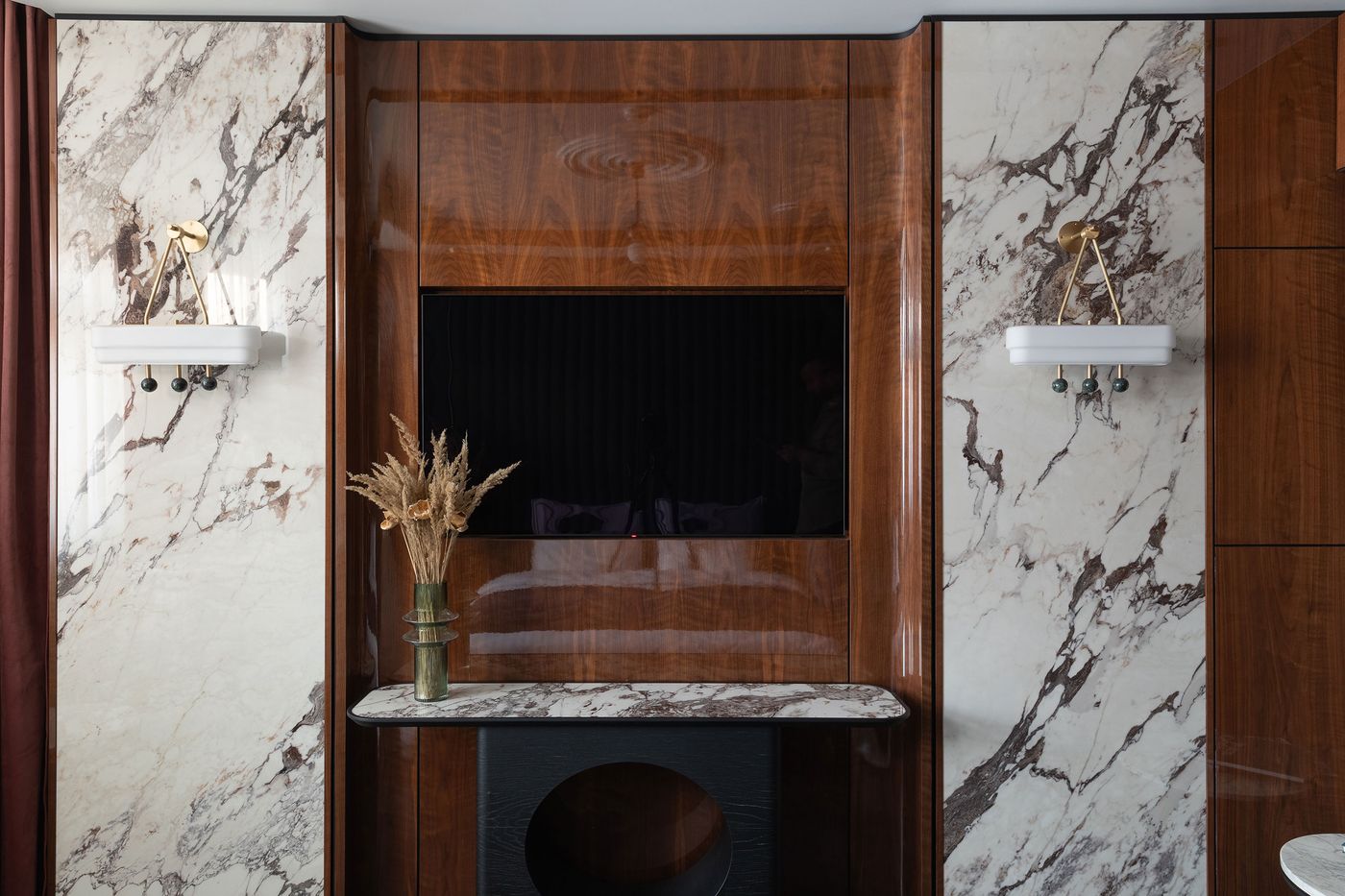
Photography by Marks Litvjakovs.
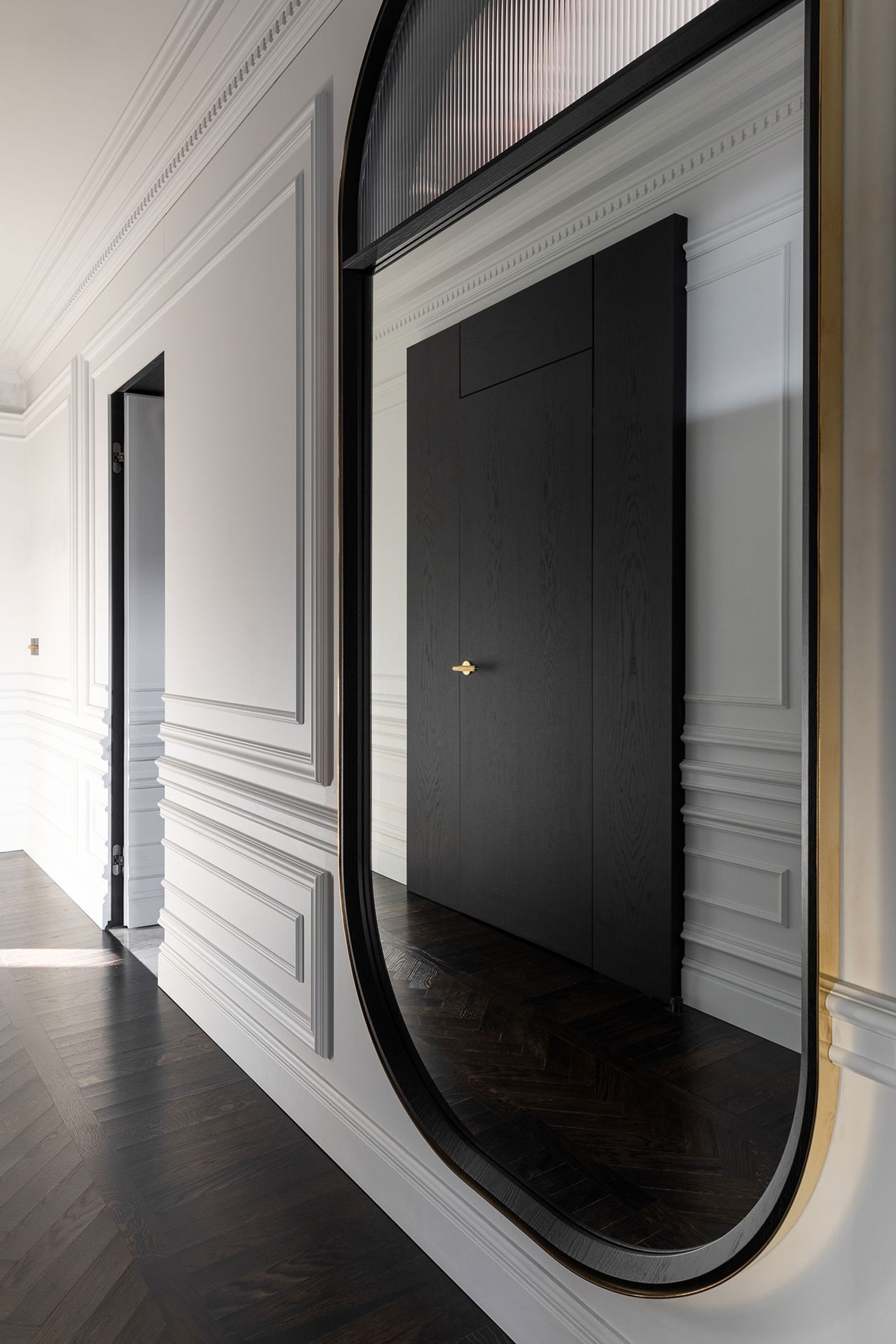
Photography by Marks Litvjakovs.
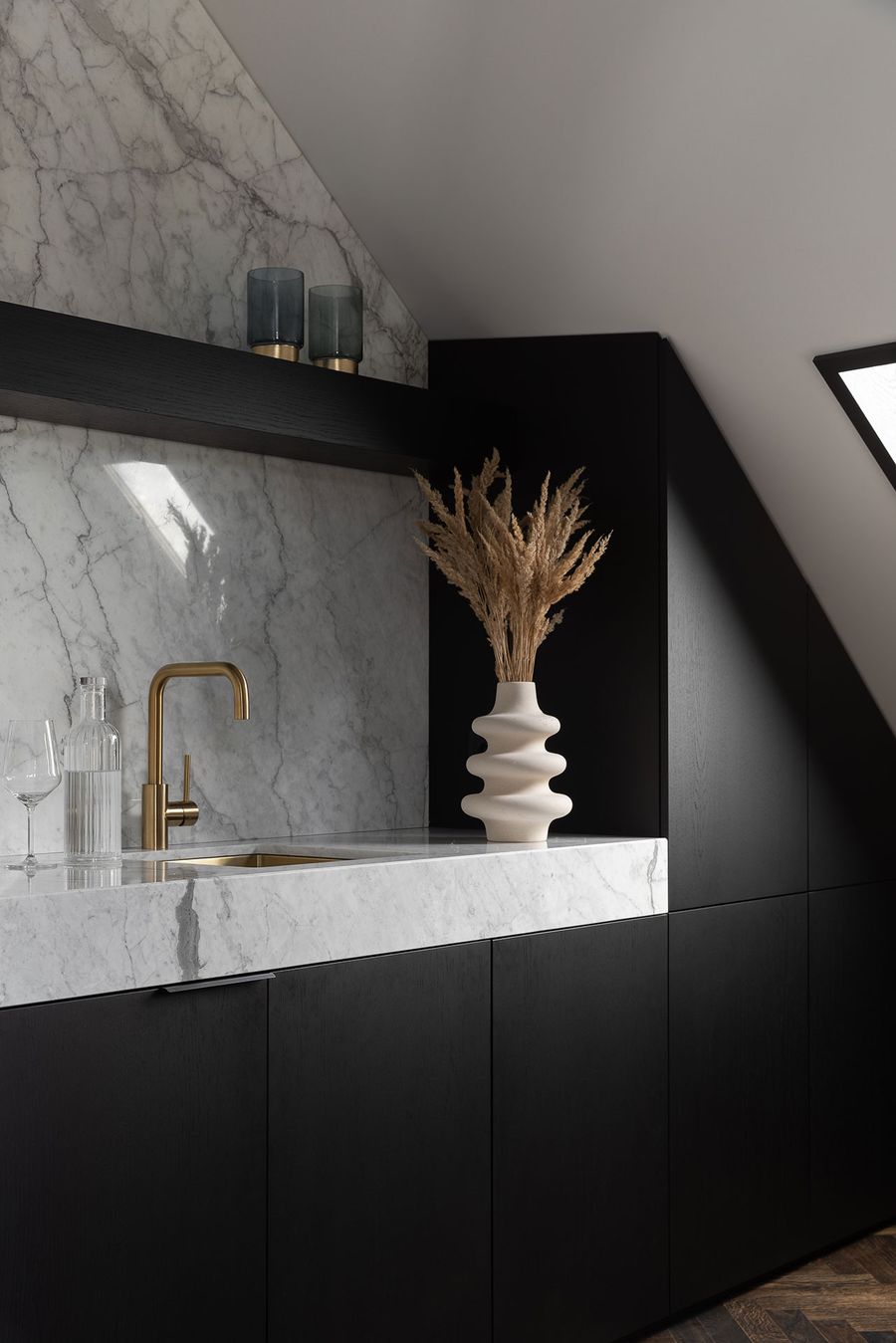
Photography by Marks Litvjakovs.
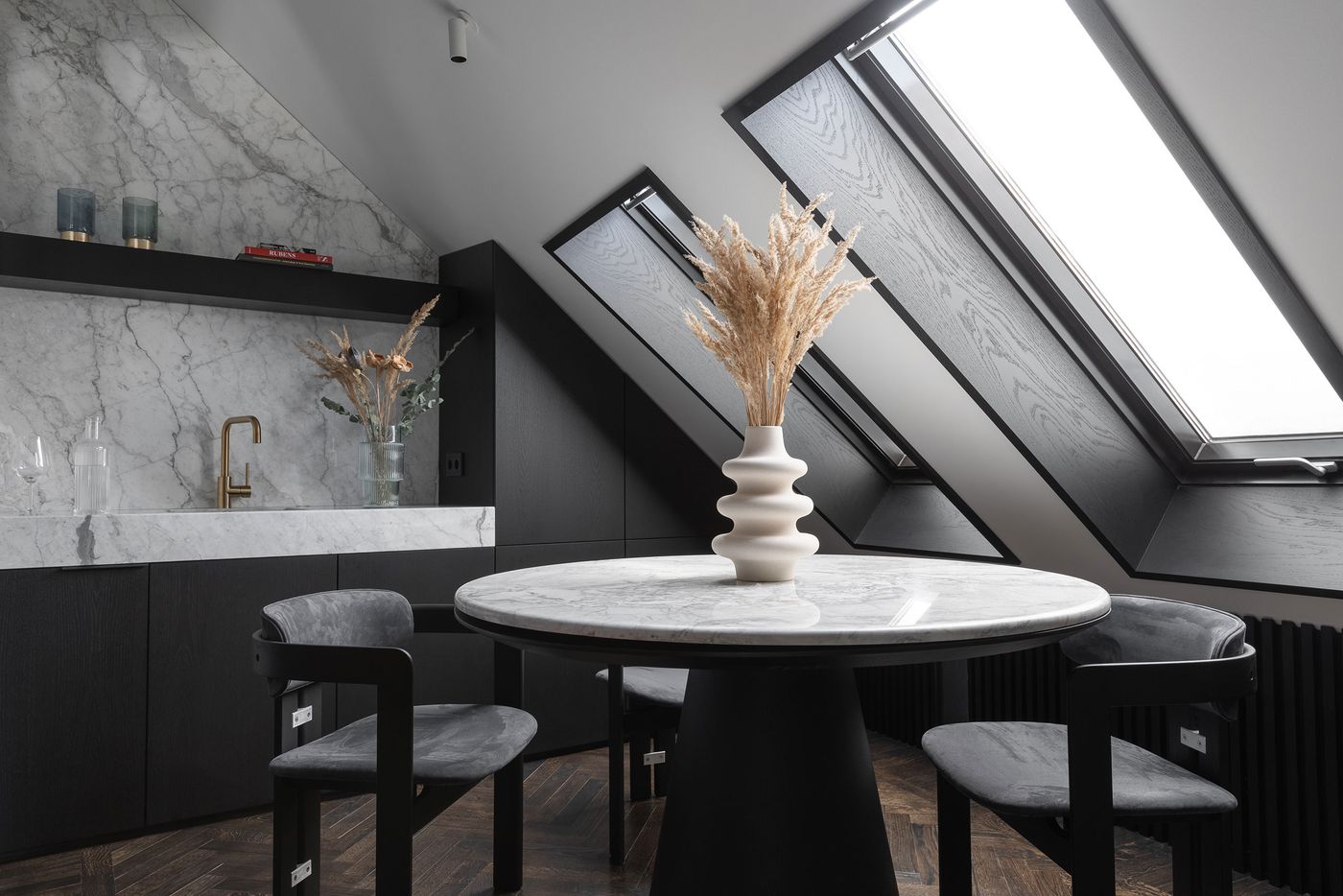
Photography by Marks Litvjakovs.
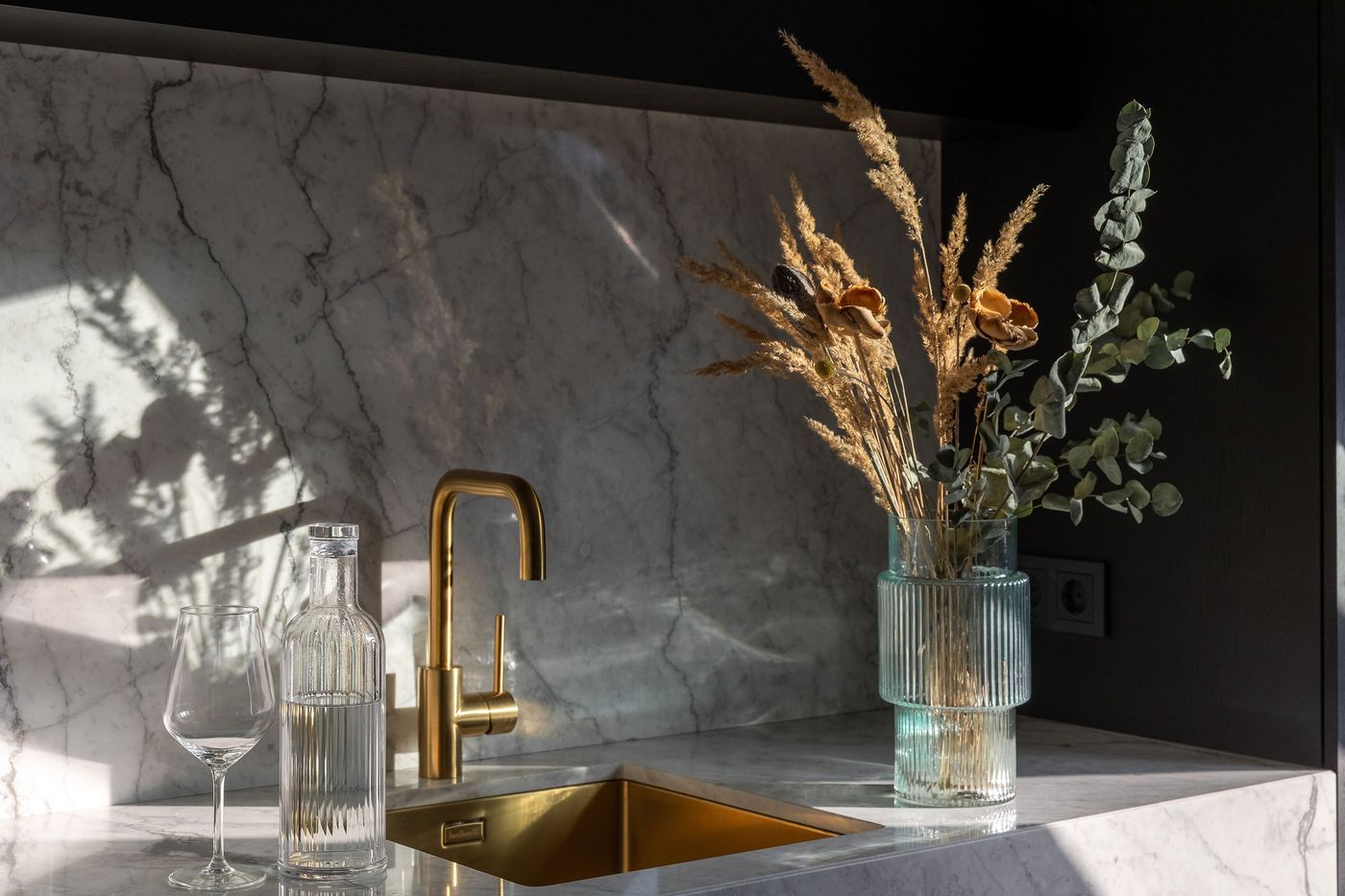
Photography by Marks Litvjakovs.
